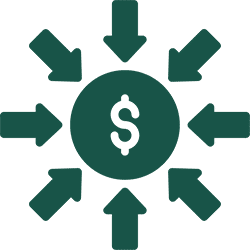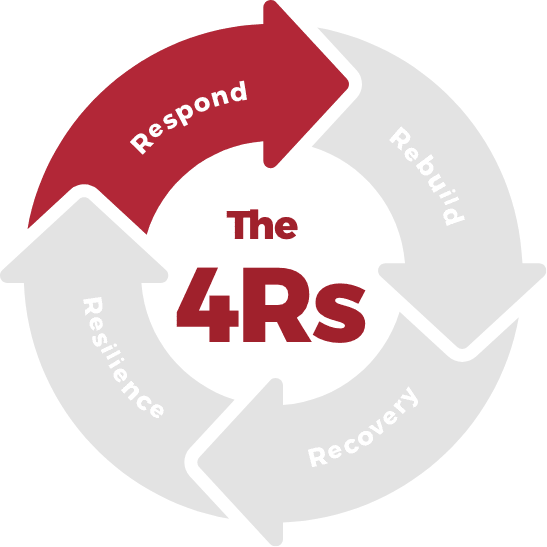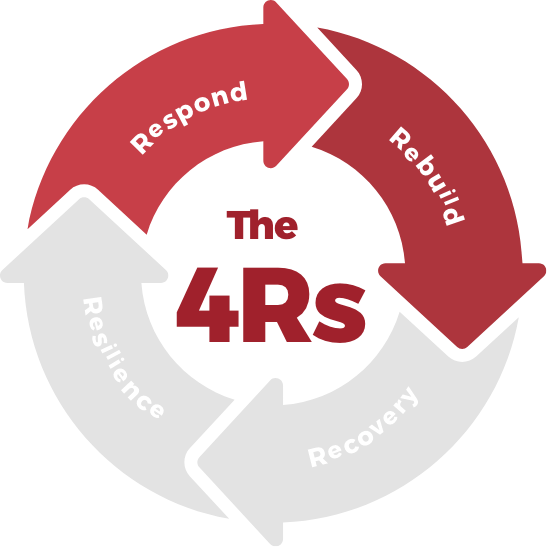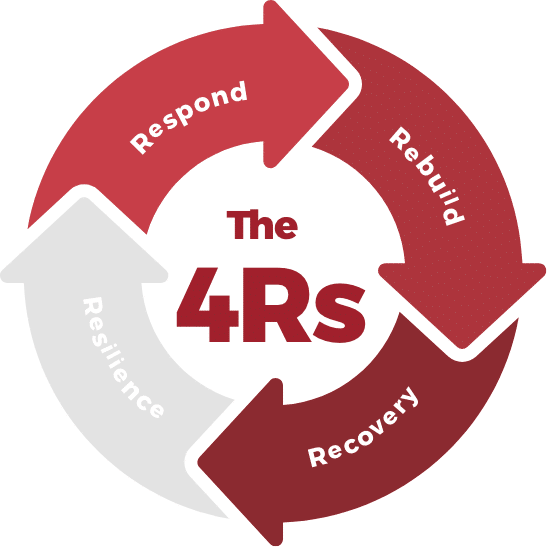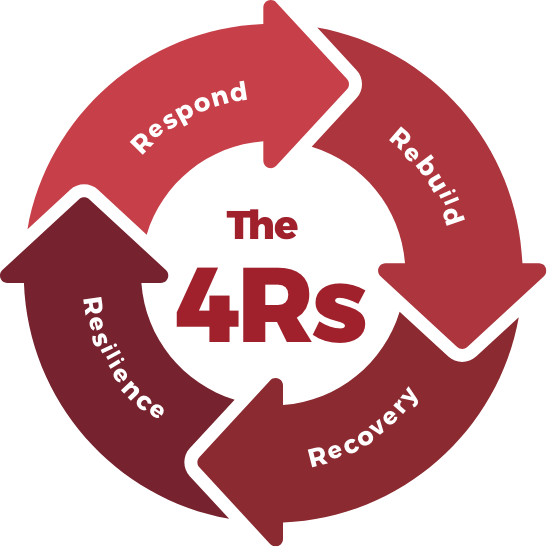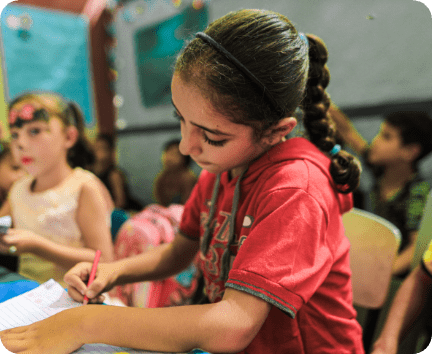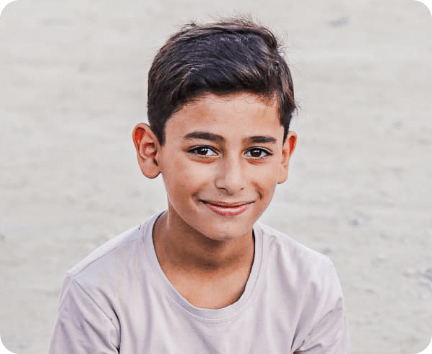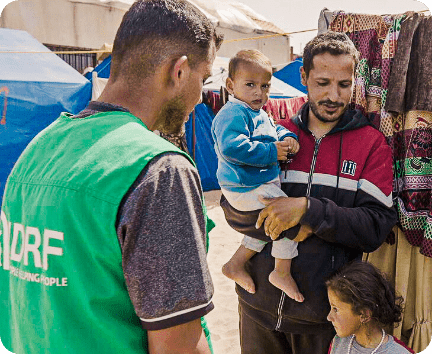Annual
Report
2024
Annual
Report
2024
Our mission is simple.
TO BUILD RESILIENT COMMUNITIES, ACROSS BORDERS, FOR FUTURE GENERATIONS TO COME.
Message from our Board of Directors & CEO
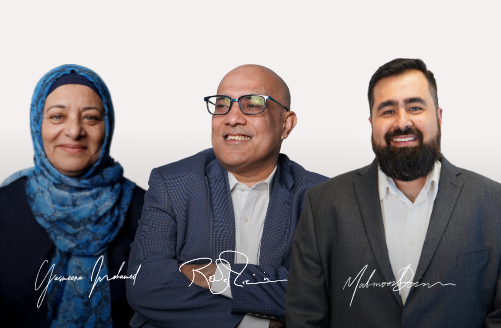
Message from our Board of Directors & CEO
In a world increasingly impacted by crises, this past year has brought unprecedented challenges, particularly in Gaza. The scale of the devastation, loss, and despair has tested the resilience of entire communities and shaken the global conscience. Yet, in the face of these atrocities, your support has enabled us to bring hope and relief to those who need it most.
With your generosity, we have been able to reach new milestones and touch millions of lives.
Through your contributions, IDRF has implemented critical projects that provided clean water, quality education, healthcare, nutritious food, and economic development opportunities to 4,321,634 people across 34 countries.
These accomplishments would not have been possible without your steadfast commitment.
In Gaza, amidst unimaginable adversity, we have been able to deliver life-saving medical aid, provide shelter, and offer essential support to help families endure the crisis with resilience and dignity.
Your compassion has reached countless families, providing them with the resources and support they need to rebuild their lives with dignity and hope.
This year, more than ever, has shown the power of collective action and the profound impact of a compassionate community.
Your support has been a testament to the enduring spirit of humanity. As we envision our journey ahead, we remain committed to our communities.
Together, we can tackle any hurdle, striving toward a future that promises hope, stability, and dignity for those we serve.
Thank you for standing with us as we strive to make a lasting impact.
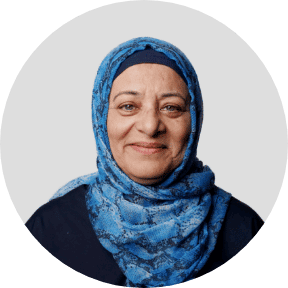

Yasmeena M.
Co-Chair
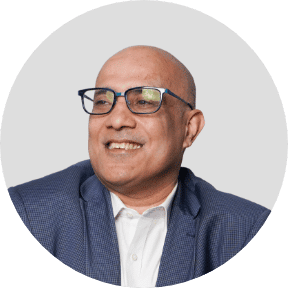
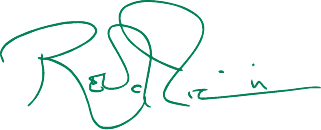
Reza R.
Co-Chair
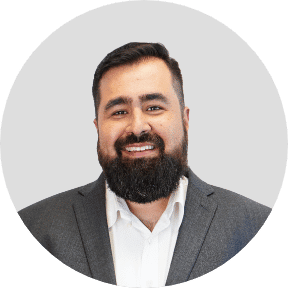
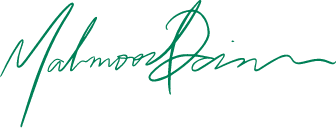
Mahmood Q.
CEO


Yasmeena M.
Co-Chair


Reza R.
Co-Chair


Mahmood M.
CEO
Board of Directors
Vice Chair
Marzia Habib H.
Vice Chair
General Secretary
Zeib J.
Board Member
Mukhtar R.
Board Member
Muzna A.
Board Member
Muhammad M.
Vice Chair
Marzia Habib H.
Vice Chair
Nurhan A.
General Secretary
Zeib J.
Board Member
Mukhtar R.
Board Member
Muzna A.
Board Member
Since 1984, IDRF has implemented relief and development projects across territories in South and Southeast Asia, Africa, the Americas, Eastern Europe and the Middle East.
Our projects stand on four pillars:
Community-Centered
Approach:
In all our work, we account for local interests and priorities. We aim to bolster communities by employing locals, and sourcing our supplies from local businesses.
Sustainable
Development:
We facilitate long-term growth for the communities we work in. We rely on the experience and knowledge of people on the ground, closest and most familiar with the situation and those affected.
Respect and
Inclusion:
In all our work, we account for local interests and priorities. We aim to bolster communities by employing locals, and sourcing our supplies from local businesses.
Equity and
Accessibility:
We tailor our programs to give vulnerable populations equal access to support services, without discrimination.
All our work is community-led — we are driven
by you, the communities that support us, and the
communities we serve.
This was your
impact in 2024.
With your generous support, we were able to touch the lives of 4,321,634 people across 34 countries.

815,355
people received food assistance
through food parcels and vouchers

162,495
people supported with
emergency response

701,270
people received clean water,
hygiene and sanitation services

356,264
people received health care
services

52,962
people received educational
support

8,067
people received support to start
businesses and receive training
We work with trusted partners and community leaders around the world who share a common belief — that everyone deserves the resources and opportunities to be self-sufficient. We have supported long-term development and emergency programs in 34 countries around the world, implementing 100+ different projects.
We know
a brighter Future
is possible
Emergency
Response
Together, we helped communities envision a life beyond the crisis.
For those recovering from tragedy, you brought new beginnings. For those who continue to grapple with conflict, you continue to bring renewed hope, day in and day out.
For the last 40 years, we have responded to communities facing conflict, natural disasters, economic crises, across the world.
Our efforts focus on both short-term interventions and long-term rehabilitation. In addition to emergency relief efforts, we work to empower communities reeling from crises through collaborative, sustainable development. This year, we helped empower 2,237,216 people in crisis around the world.

1,237,216
people supported with emergency response
We do this by prioritizing sustainability through our Respond, Rebuild, Recover, Resilience implementation process during an emergency response:
Gaza Emergency Response
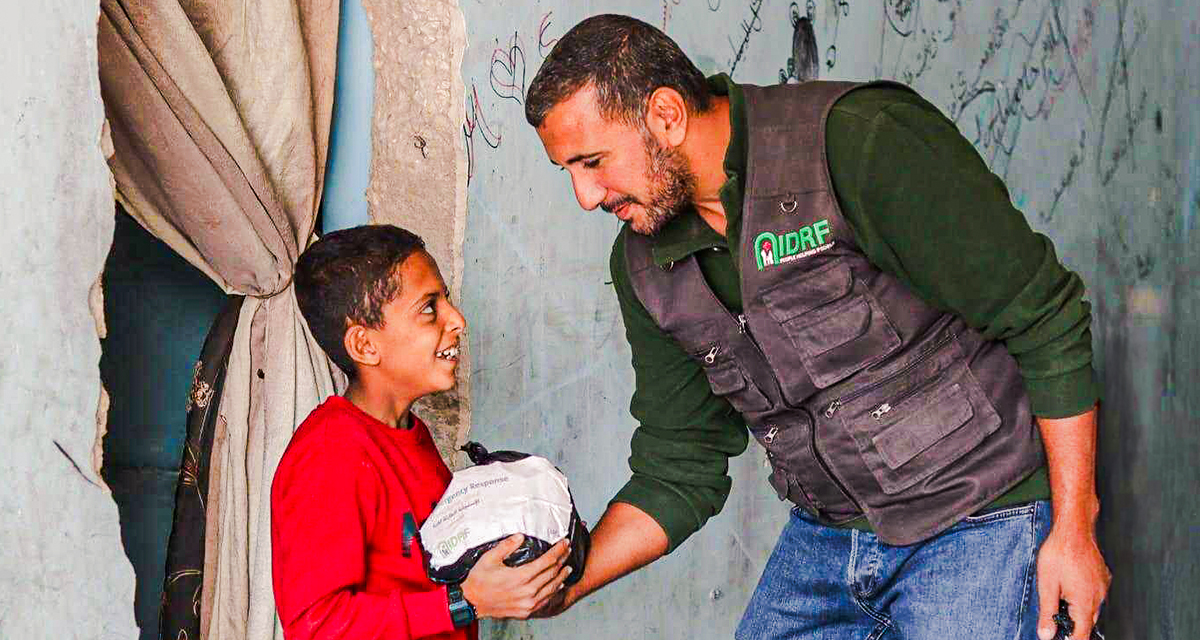
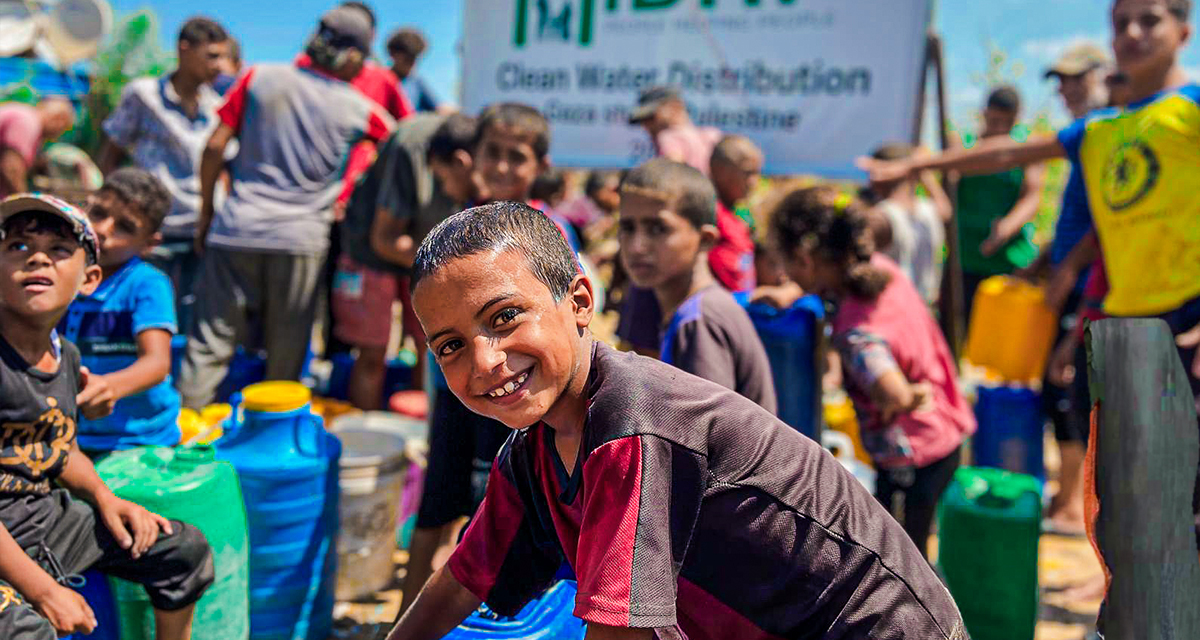
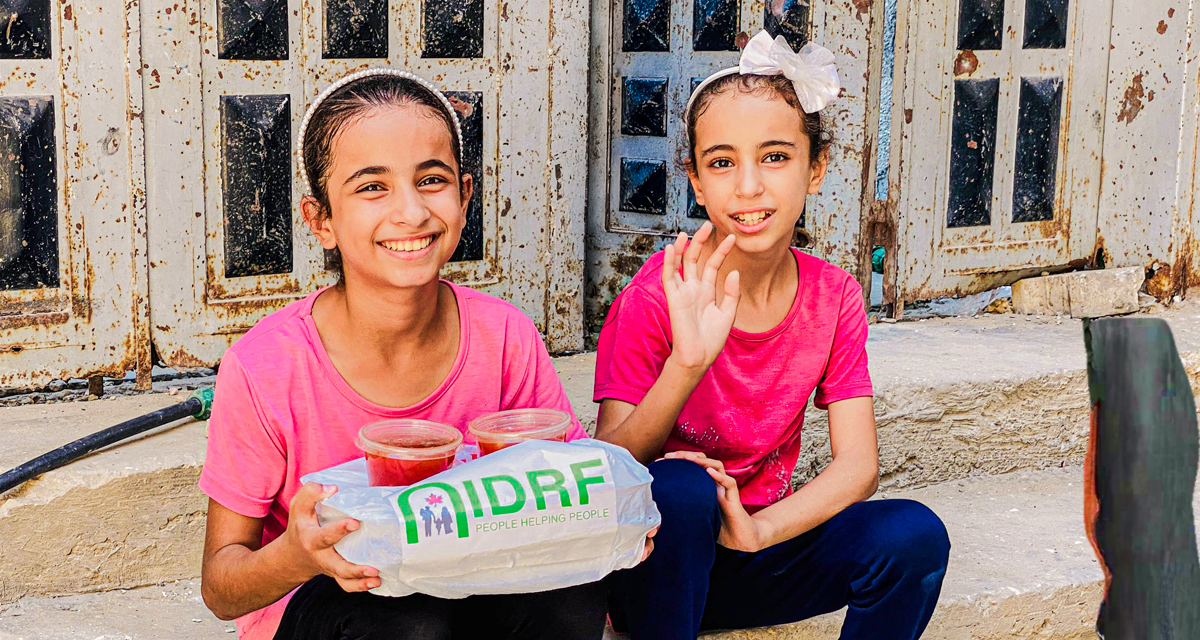
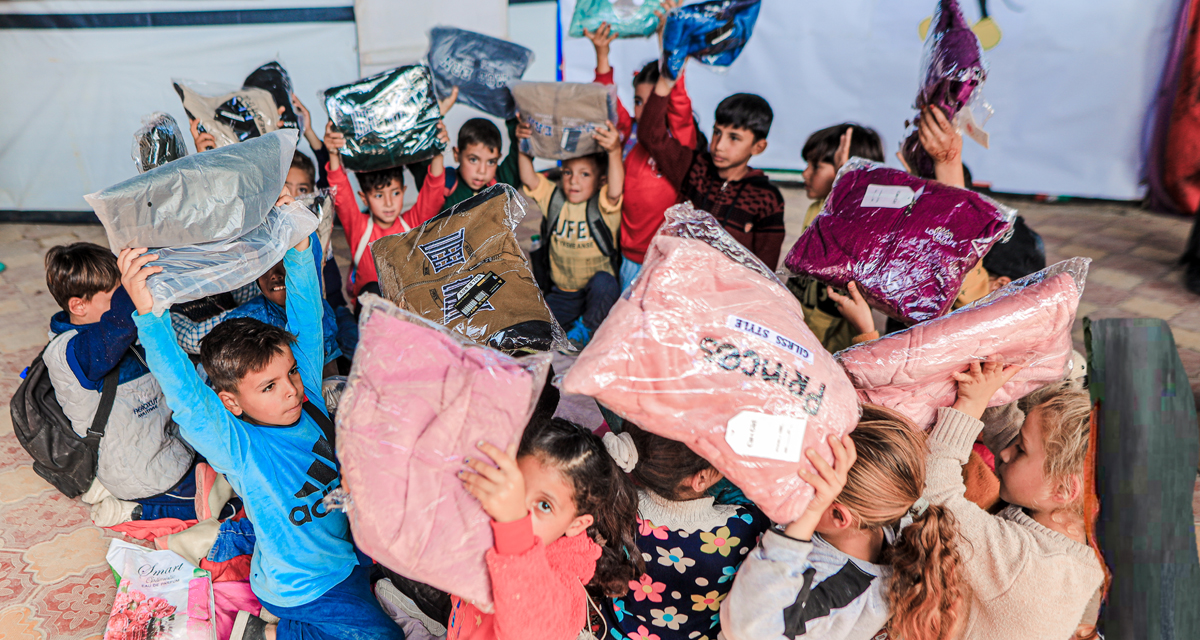
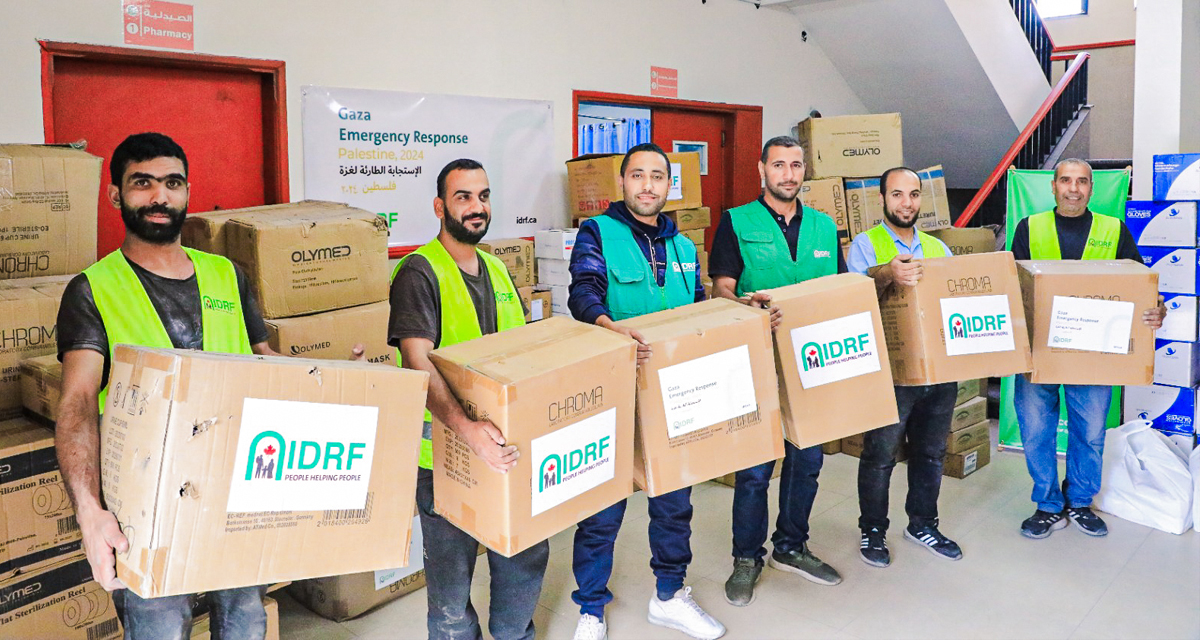


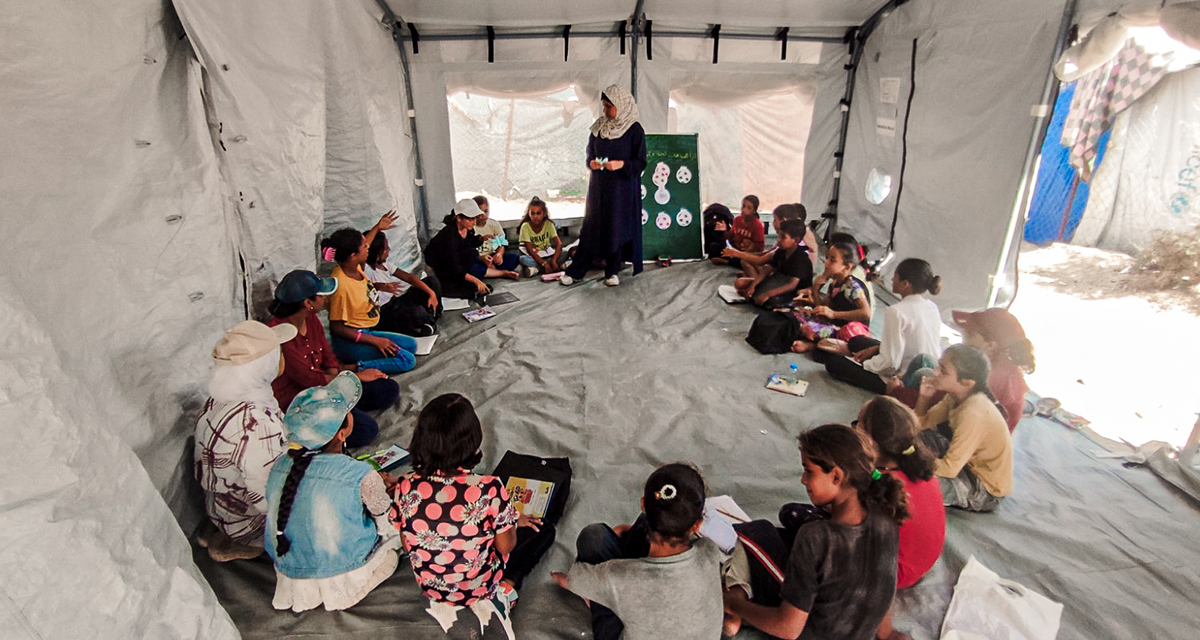
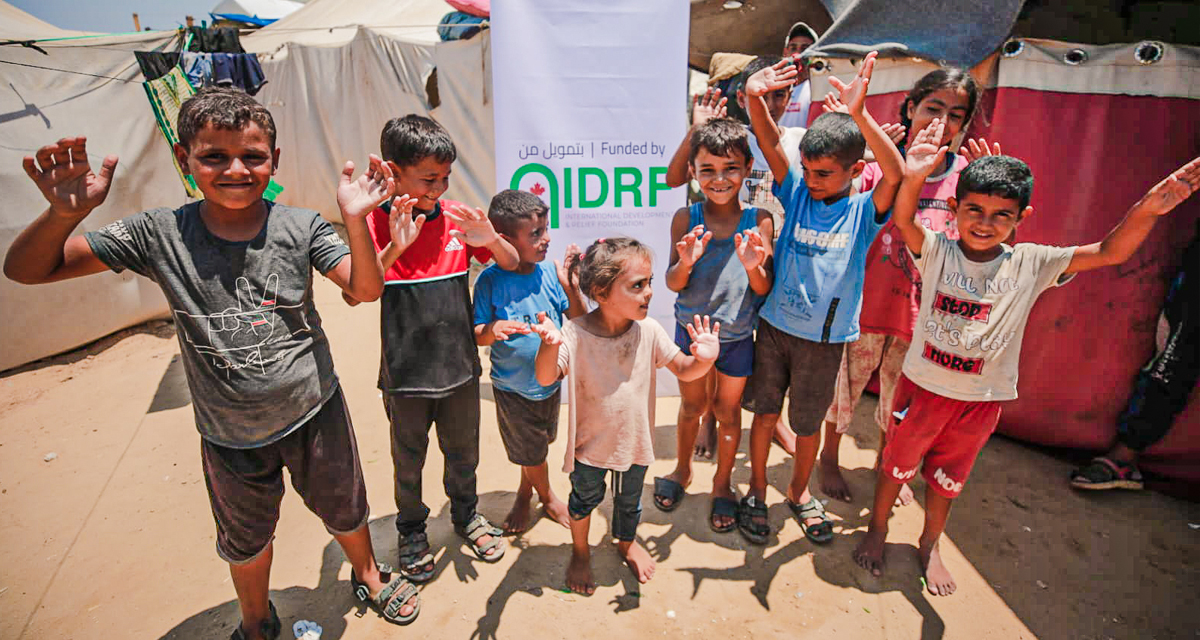
IDRF has been on the frontlines in Gaza since October 7, 2023.
With the help of our local team in Palestine, we have established a strong presence in Gaza for the last three decades. This allowed us to respond to the crisis swiftly — and we continue to do so, every single day.
Our efforts on the ground in Gaza focus on providing critical support, including:
317,282
people supported through food
parcel distributions.
6,000
hot meals were distributed
every day
78,000
individuals received fresh produce every week
100,000
people provided with 330,000 litres of water everyday
144,000
people across the Gaza Strip have received hygiene items and health care supplies
366,789
people received daily support through temporary medical points and hospitals offering essential services like medication and check-ups
281,900
people were supported with temporary shelters in tents, schools, and hospitals
50,000
children received psychosocial support
The Future of Food Security
According to the World Food Programme, 343 million people worldwide are experiencing acute hunger.
This crisis is driven by a variety of factors, including global inflation, conflict, political instability, climate change’s impact on agriculture, extreme weather events, mass displacement, and disruptions to supply chains and healthcare systems.
A world where everyone has access to adequate, safe, and nutritious food is a world that thrives. Our “Brighter Future” strategy aims to address food insecurity through long-term, sustainable solutions, improving food distribution and boosting both economic and agricultural growth.
In response to escalating food insecurity, 967,457 people in 12 countries through IDRF’s food programs.

967,457
people received food assistance
Sudan
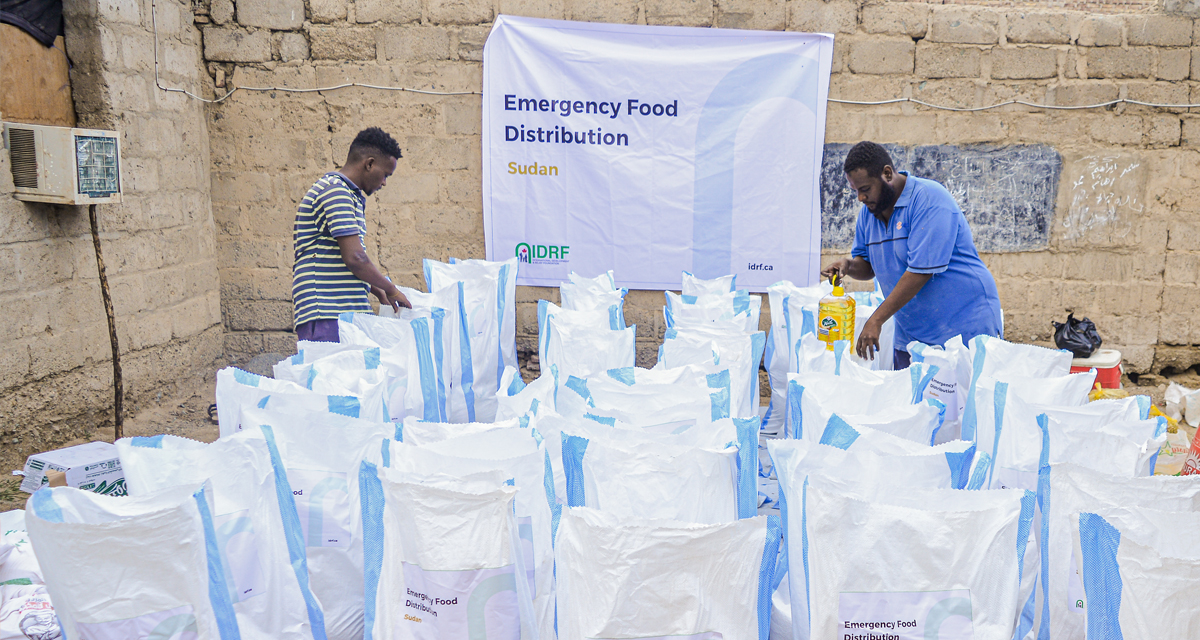
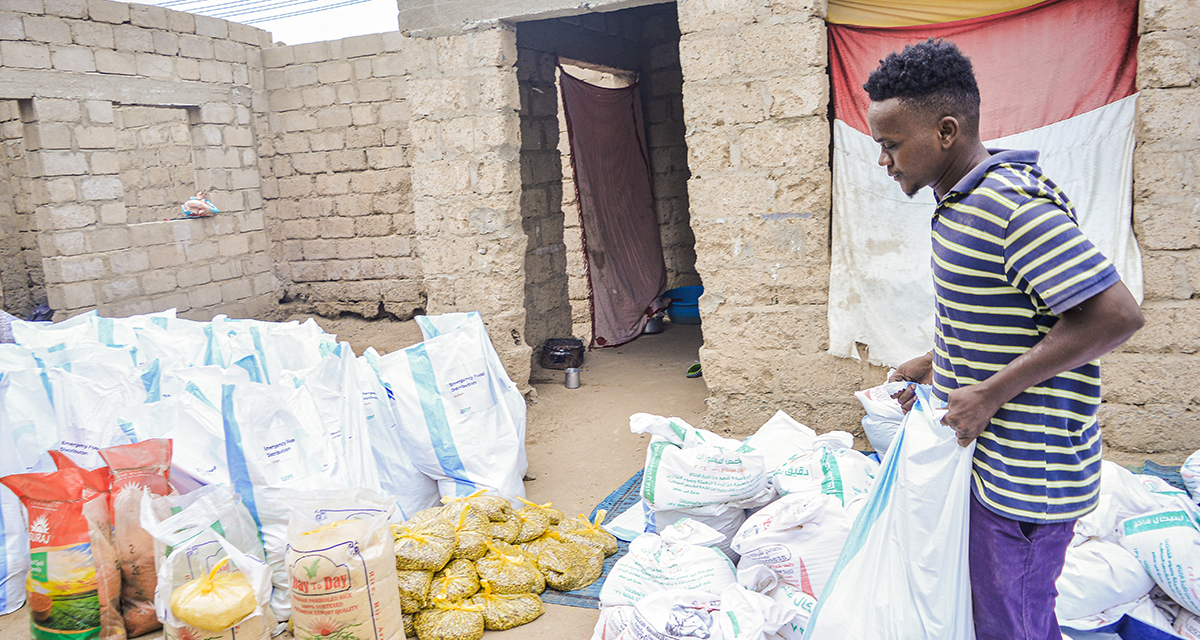
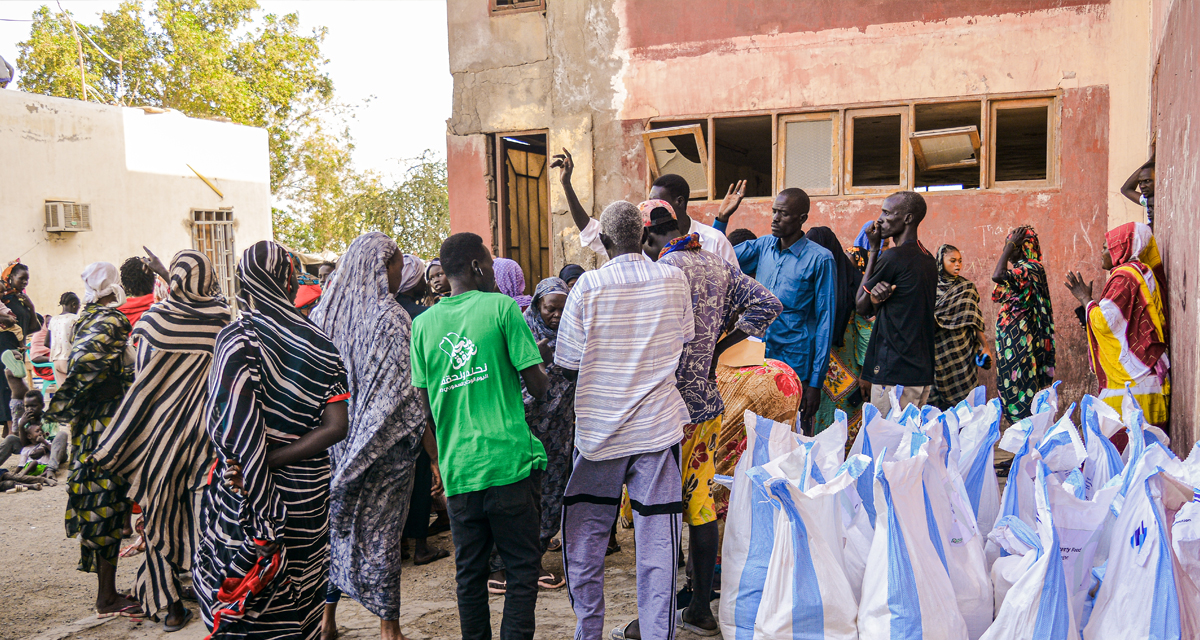
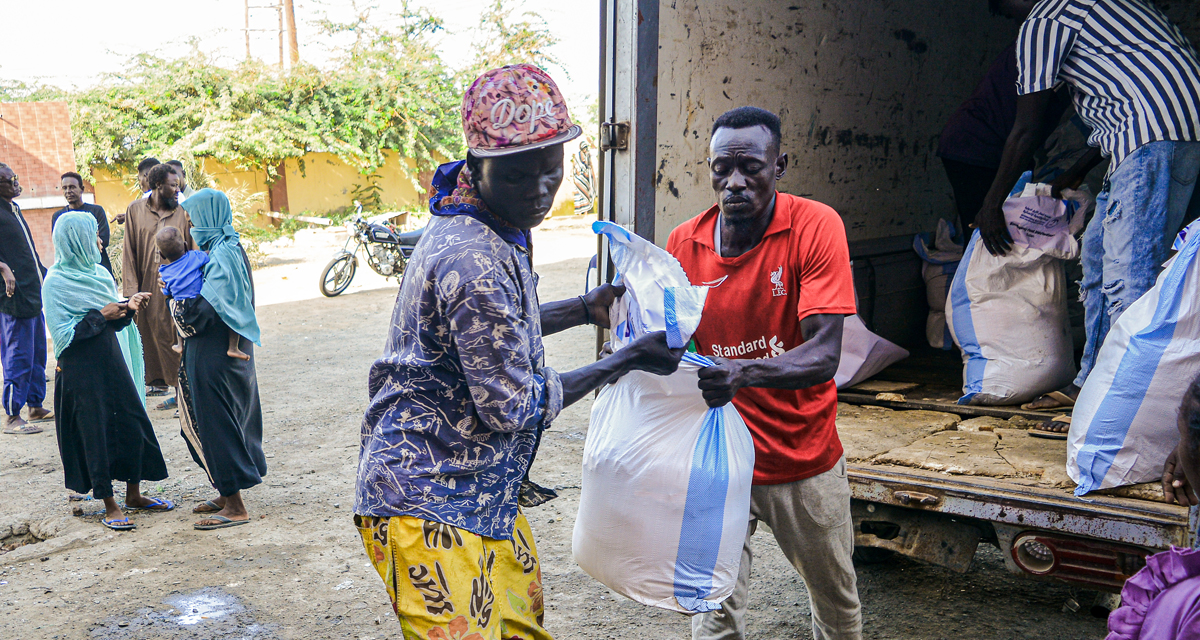
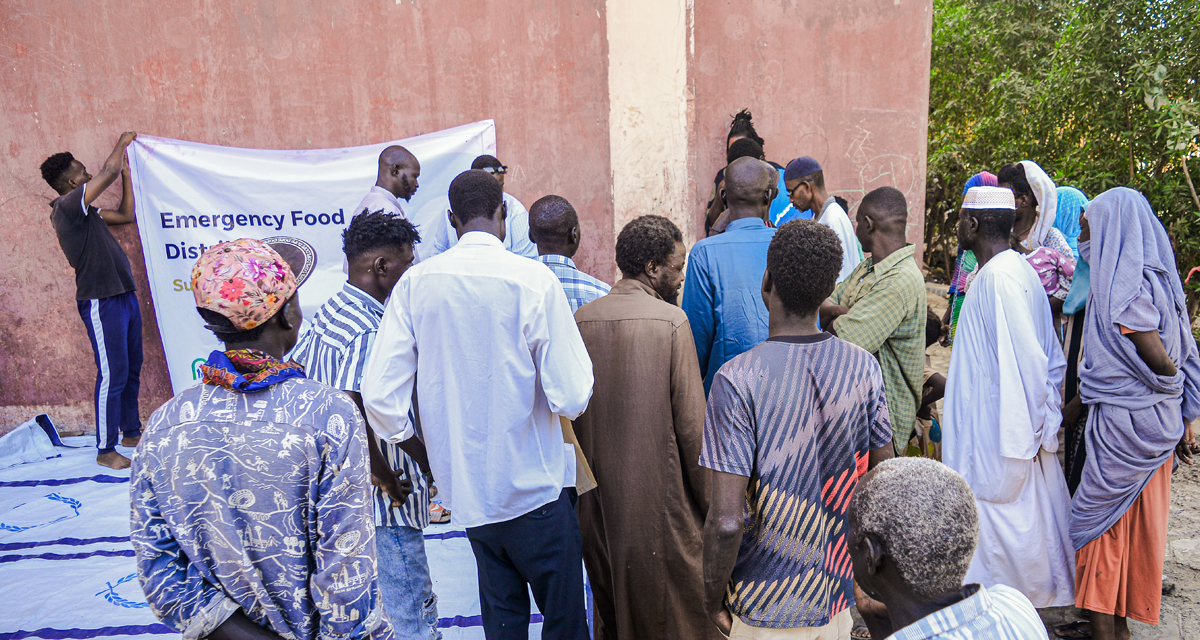

The brutal conflict in Sudan since April 2023 has forced millions of people to flee their homes, leaving more than 12 million Sudanese people displaced.
The vast majority—over 10 million people—remain within Sudan, representing the largest displacement crisis in the world.
In addition to the displacement crisis, floods in Sudan have severely damaged the Arba’at Dam, impacting 20 villages downstream. The floods have affected over 317,000 people across 16 states, with 118,000 displaced and thousands of homes destroyed.
Amid the ongoing crisis, Sudan is grappling with severe food insecurity, with over 25 million people facing acute hunger across the region. Public health is at risk with threats of waterborne diseases, respiratory illnesses, and vector-borne diseases, affecting the most vulnerable, notably women and children. Amidst mass displacement and reports of mass killings, humanitarian access has been severely curtailed, making it extremely hard for aid to reach vulnerable communities.
This year, IDRF provided and is continuing to distribute emergency food parcels and tents to support the most vulnerable. These efforts have reached 13,500 people across Sudan, ensuring they have access to essential necessities to tide them through the crisis.

13,500
people supported in Sudan
Somalia


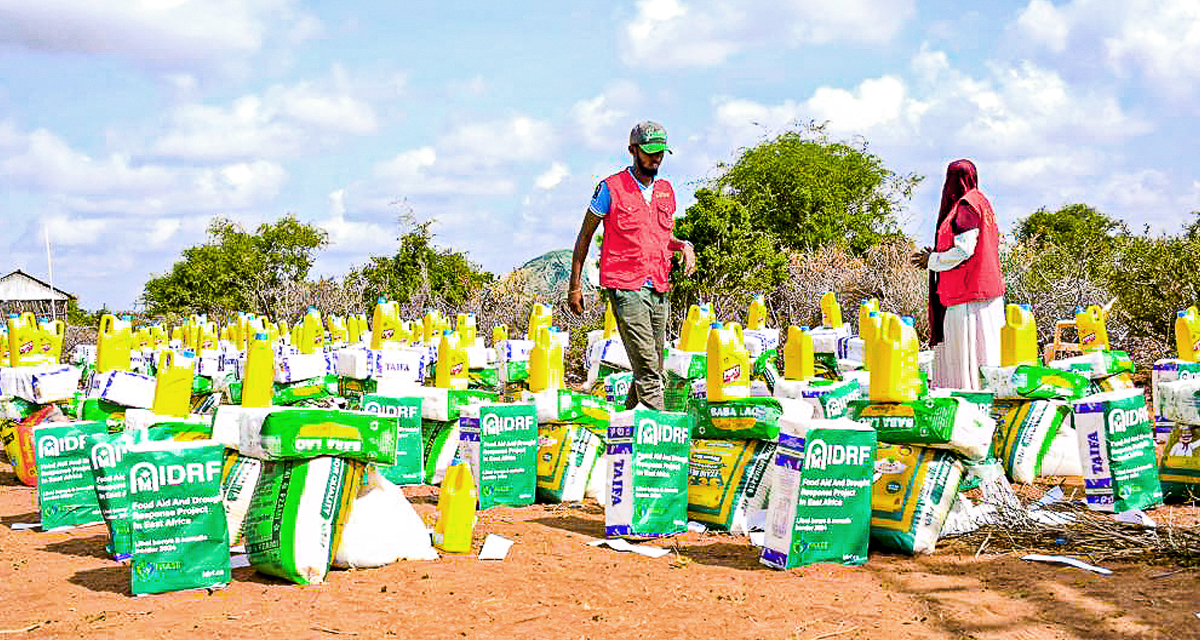
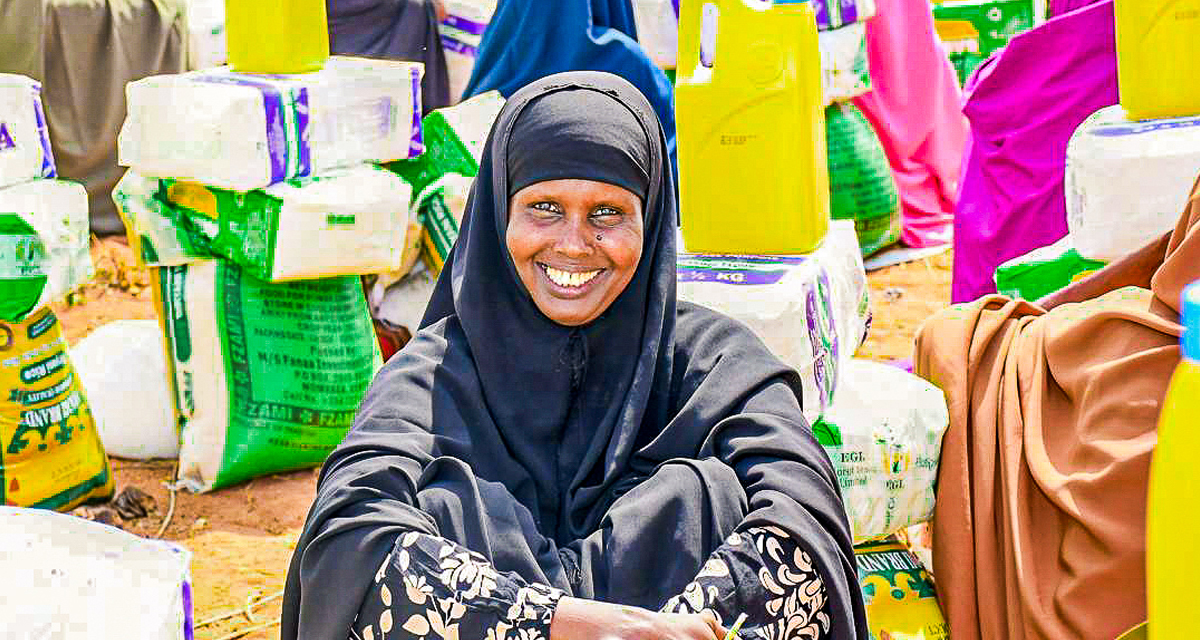



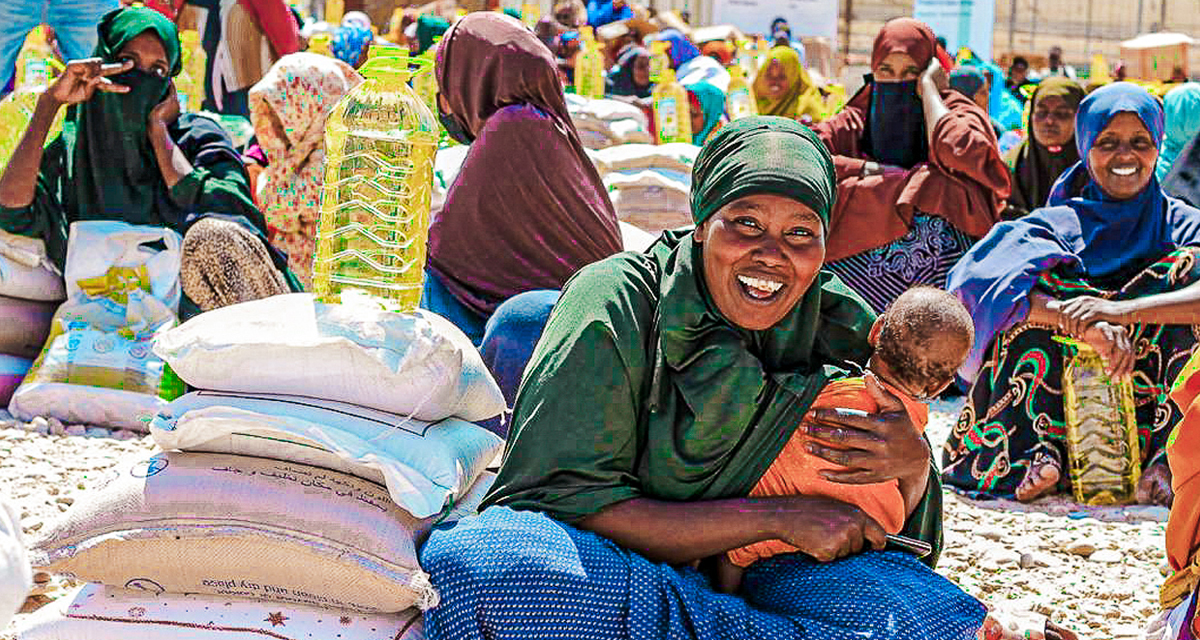
Decades of conflict, displacement, and natural disasters have left over 3.6 million people in Somalia facing acute hunger, with 1.8 million children suffering from malnutrition.
The crisis has been worsened by prolonged droughts, recurring floods, desert locust infestations, and economic instability. The ongoing climate crisis continues to severely impact the Horn of Africa, further exacerbating these challenges.
In response, IDRF has supported 138,261 people with food this year, providing vital aid to families affected across the country.

138,261
people supported in Somalia
Yemen
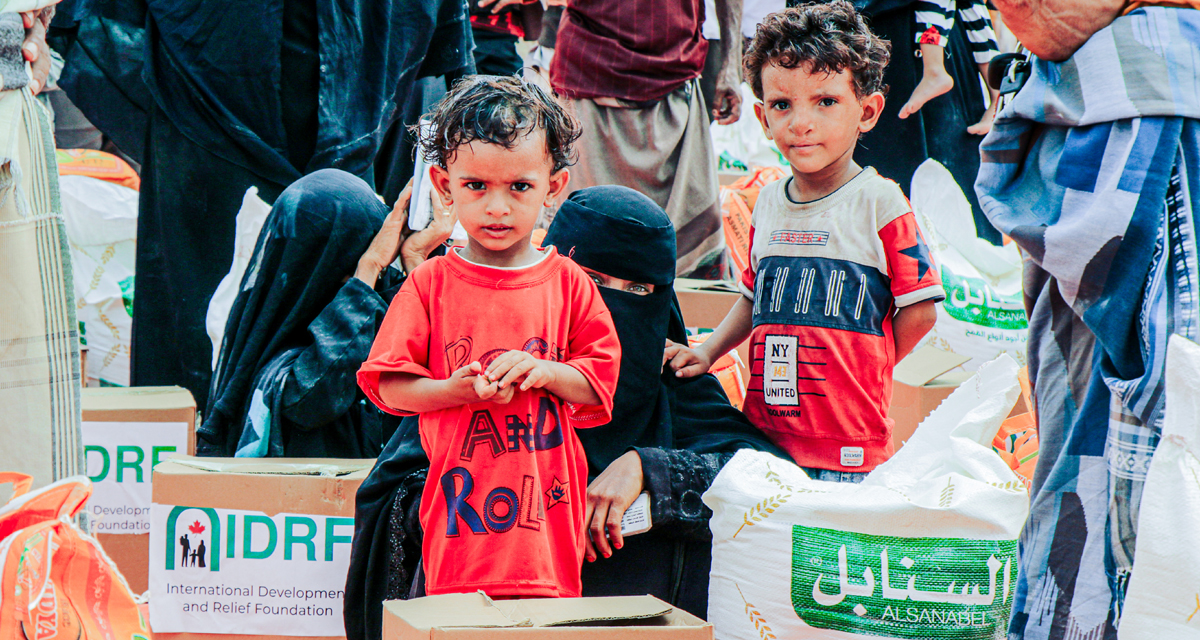


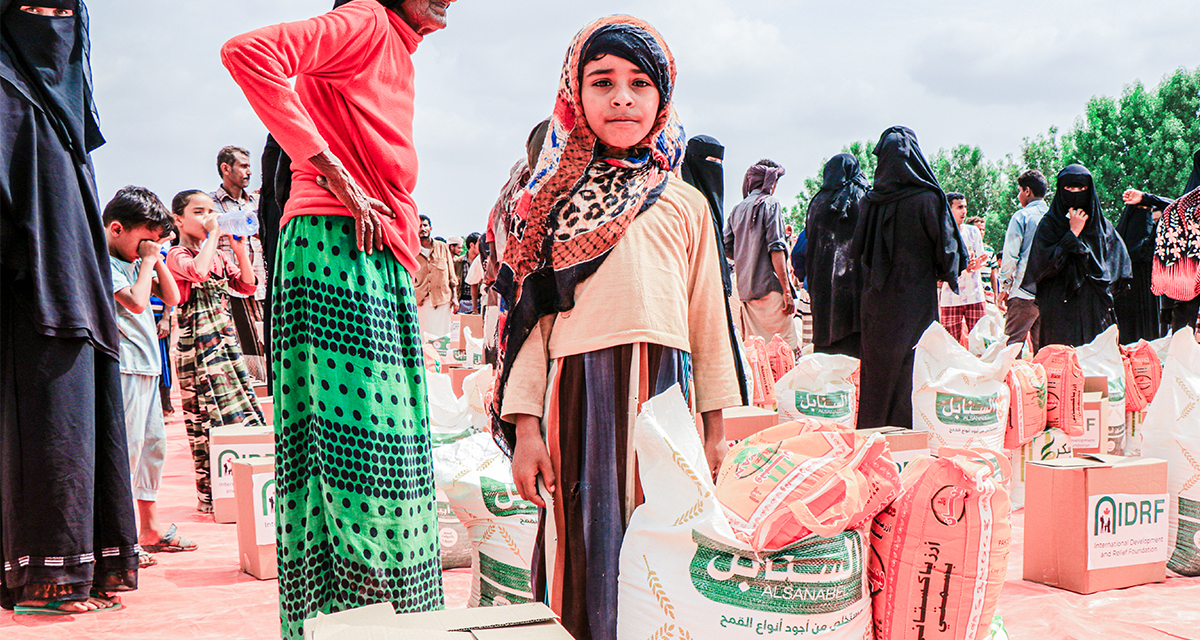
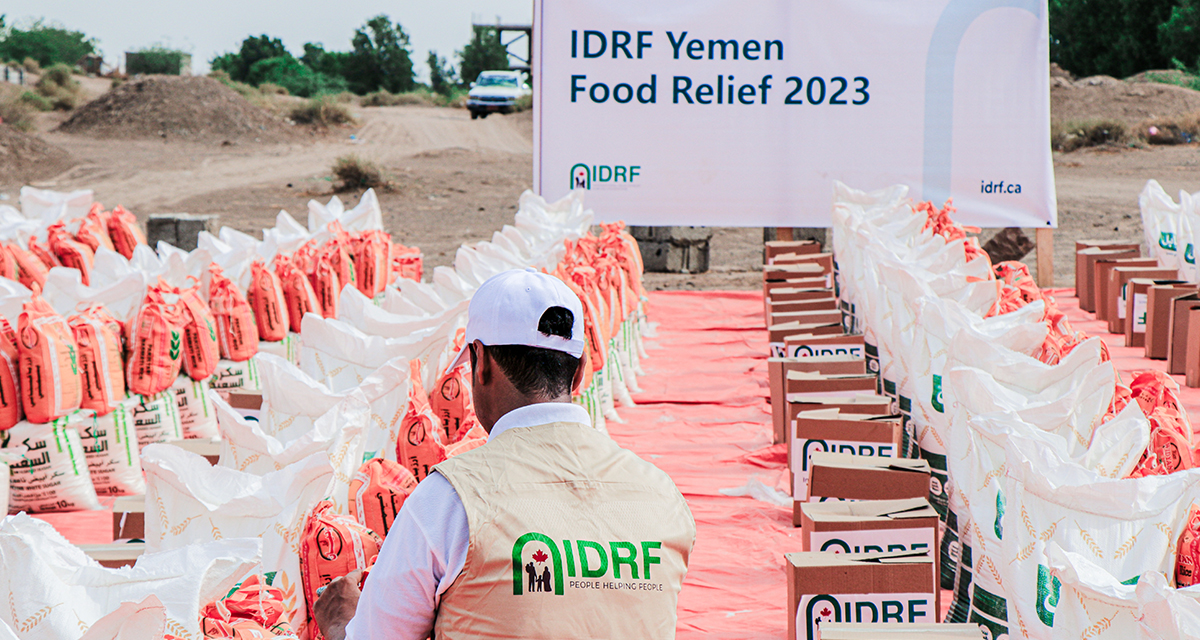

Yemen remains one of the world's most dire humanitarian crises, with over 17.6 million people struggling with food insecurity, according to the World Food Programme.
Families across the country face immense challenges accessing basic necessities, with economic instability, displacement, and recurring climate shocks leaving millions unable to provide food for their loved ones.
In order to alleviate food insecurity while supporting the local economy, we provided food vouchers to families in Hadhramout. In total, we supported 15,000 people with food aid in Yemen.

15,000
people supported in Yemen
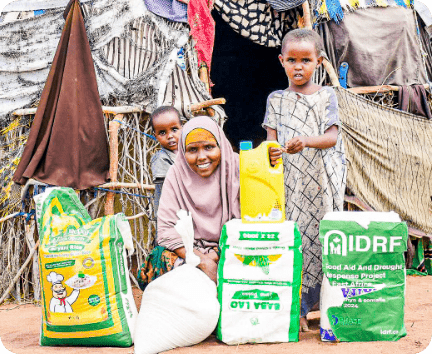
Droughts and floods have displaced my family, pushing us into a camp. Providing basic needs has been tough. I am so grateful for the aid I received because I can now support my six children.
Maliha
Water for All
Around 2 billion people globally lack access to safe drinking water.
As the climate crisis worsens, water resources are increasingly under threat due to droughts, overburdened water tables, and flooding. By 2025, UN-Water estimates that 1.8 billion people will live in countries or regions with absolute water scarcity. Women and girls continue to remain disproportionately affected, taking long, gruelling journeys to collect water.
At IDRF, we are committed to improving access to clean water as a fundamental human right. Through our mission to build a “Brighter Future,” we work to rehabilitate water infrastructure, provide WASH education, distribute hygiene products, and enhance water technology. In conflict zones, we use water trucking to ensure immediate access to clean water.
We recognize that water and sanitation are central to sustainable development. Going forward, IDRF aims to improve water security for the most vulnerable communities by:
- Ensuring management structures that are gender-inclusive
- Creating multi-use water systems to provide for communities, healthcare facilities and agriculture
- Continuing to build and rehabilitate water wells that will be supported and maintained by the local community
This year, our efforts reached 1,452,597 people, providing them with access to clean water and essential hygiene services.

1,452,597
people received clean water, hygiene, and sanitation services
Kenya

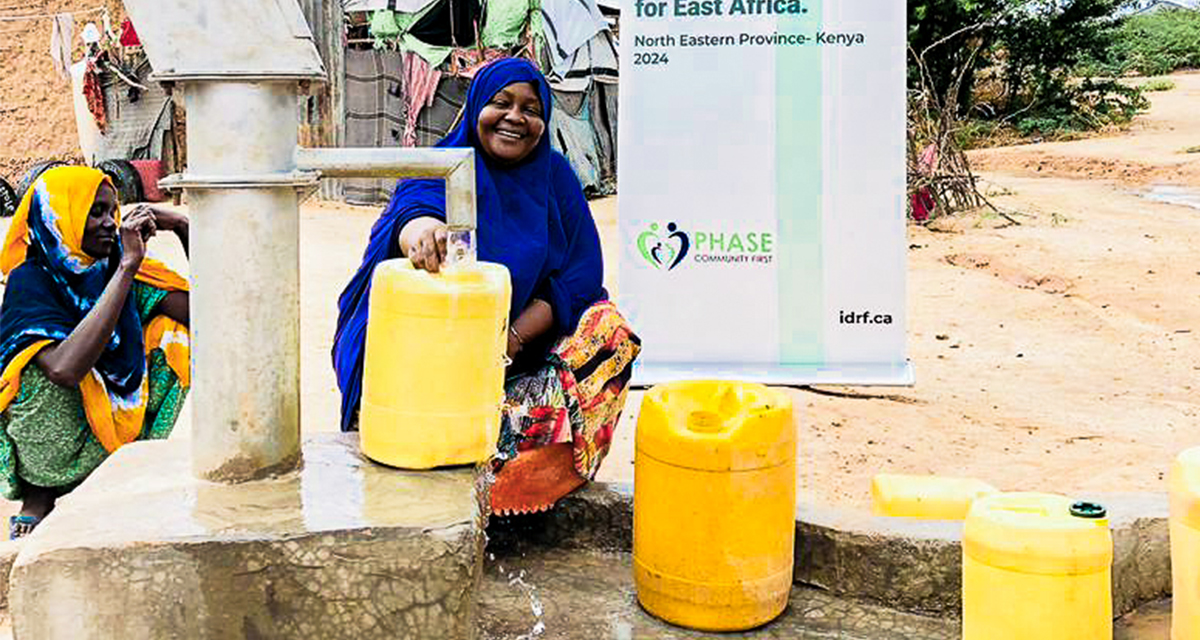

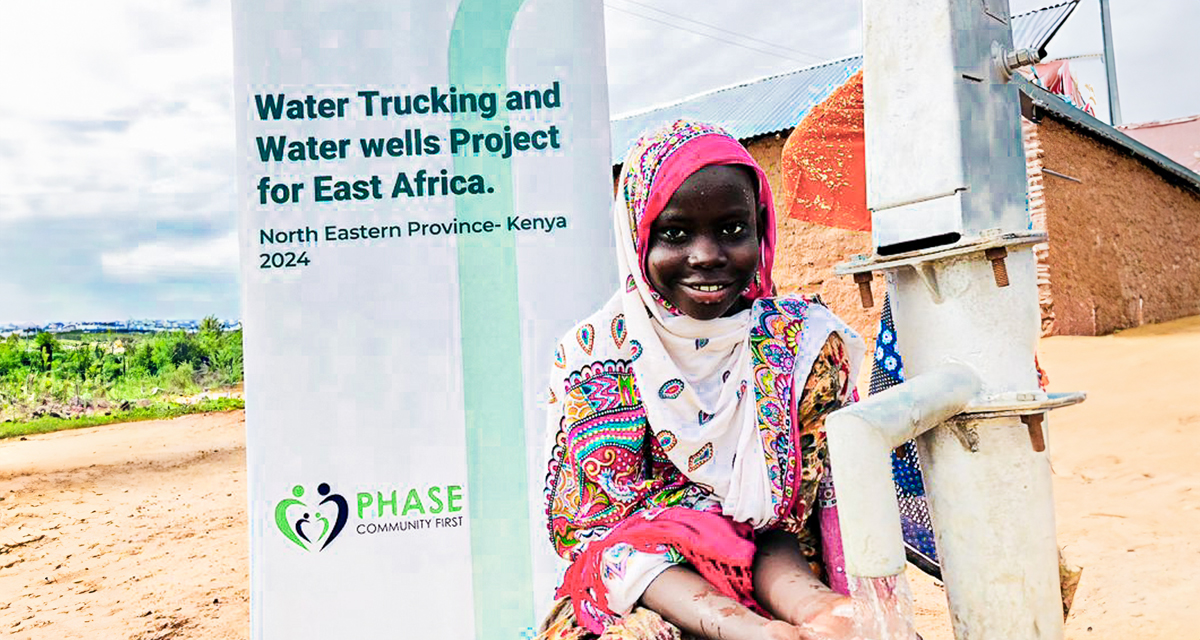
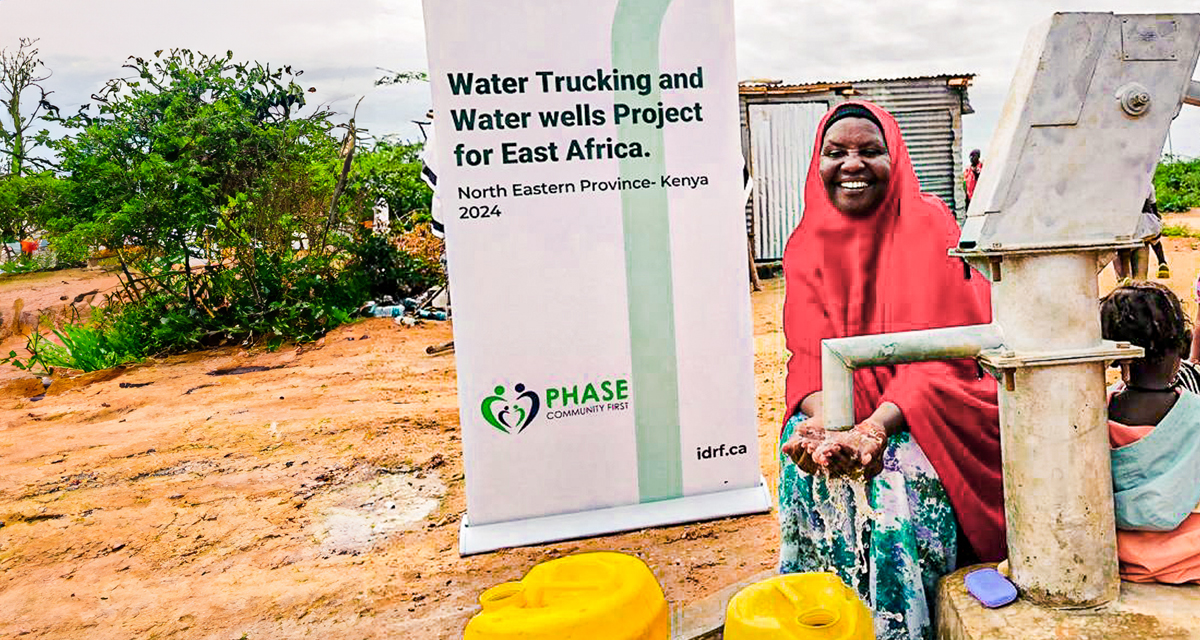
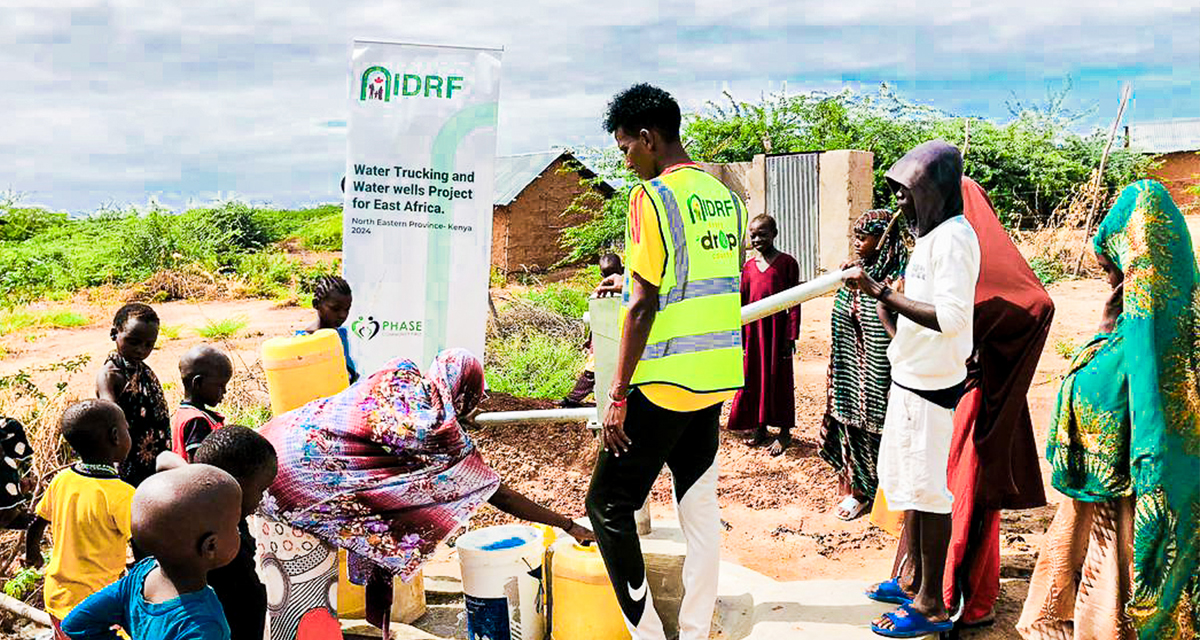
According to UNICEF, over 8.5 million people in the Horn of Africa are experiencing critical water shortages.
In Kenya, approximately 15 million people lack access to safe drinking water, exacerbated by severe drought conditions. This has forced countless families to leave their homes in search of clean water, leading to mass displacement, worsening hygiene conditions, and disease outbreaks.
To address this crisis, IDRF has supported 78,750 people in the region by providing access to clean water, helping to improve health and living conditions for vulnerable communities.

78,750
people supported in Kenya
Pakistan

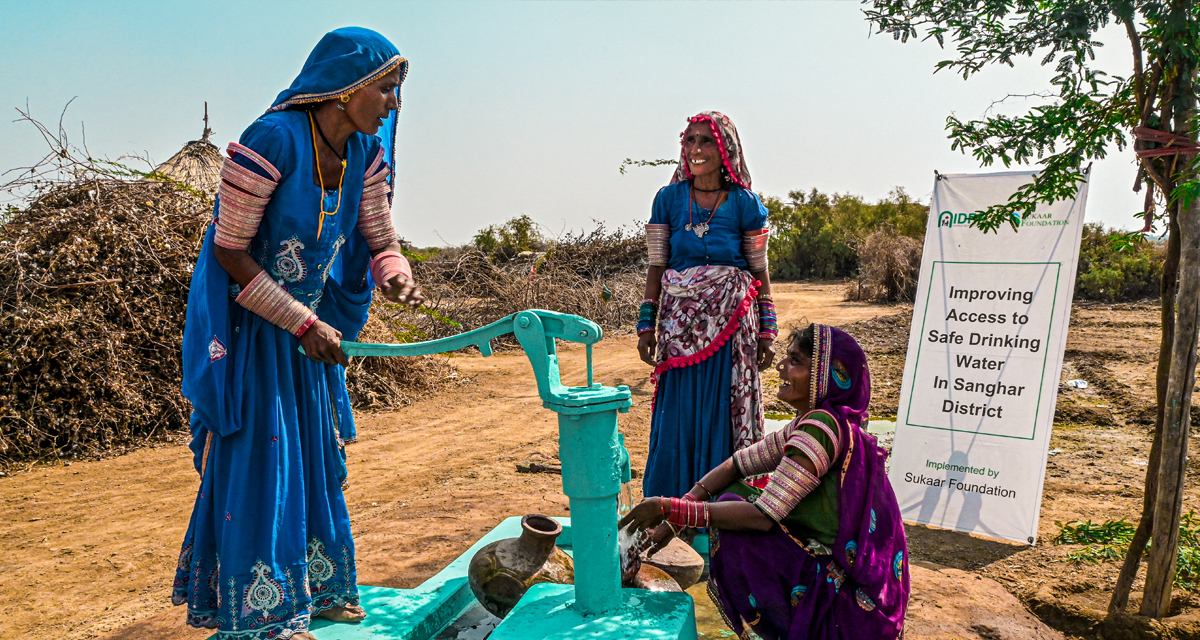
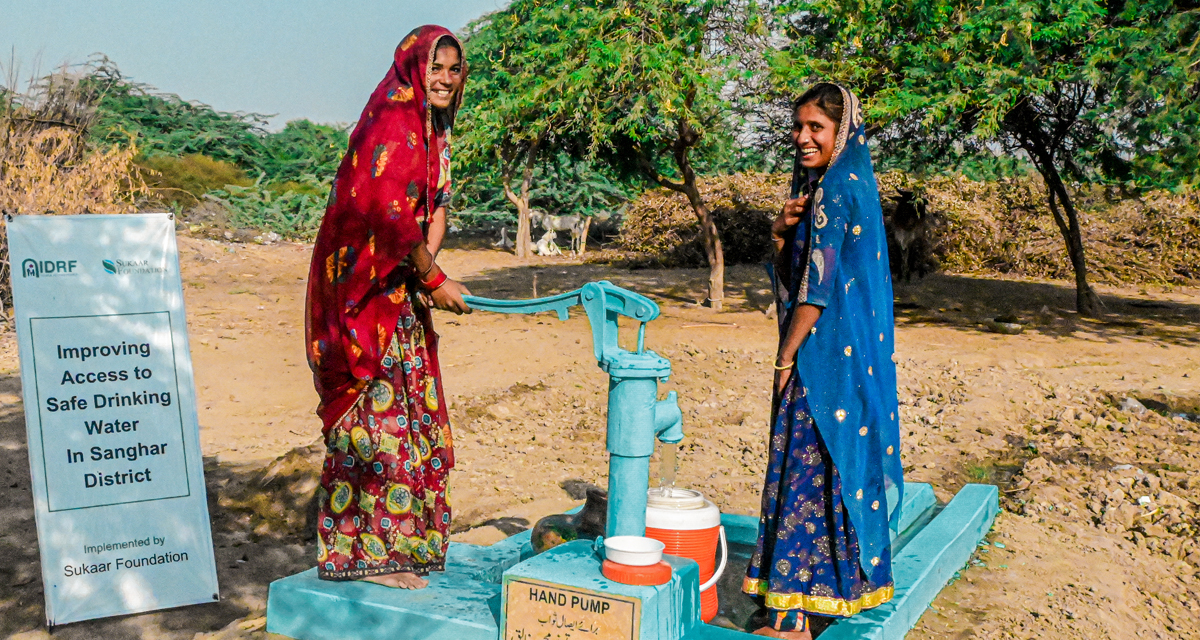



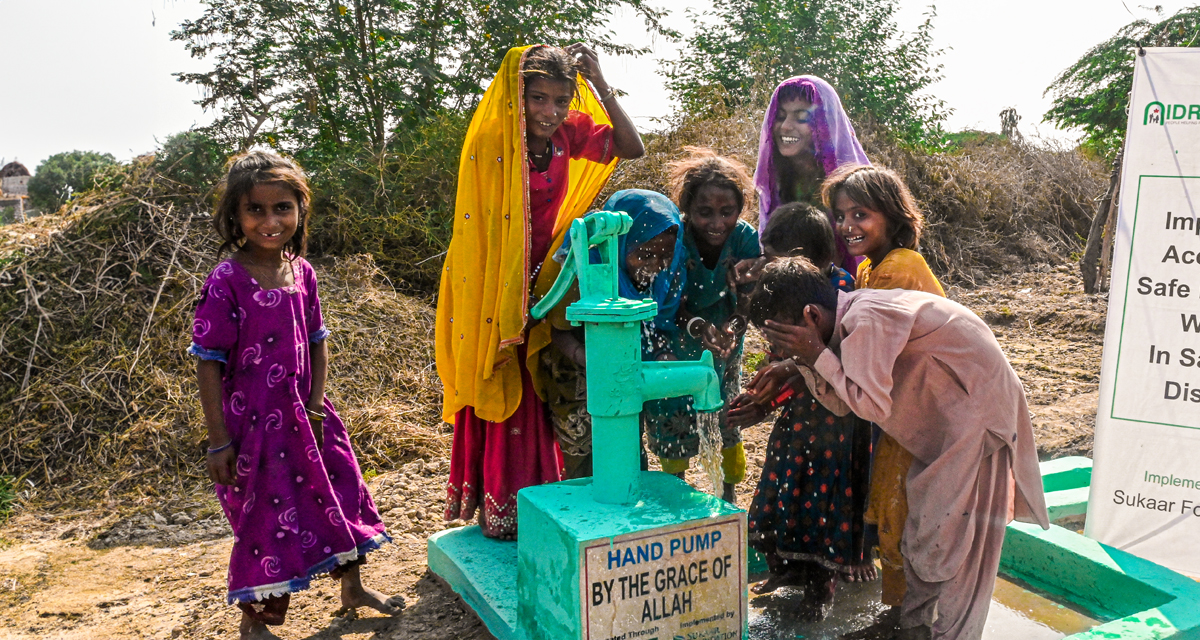

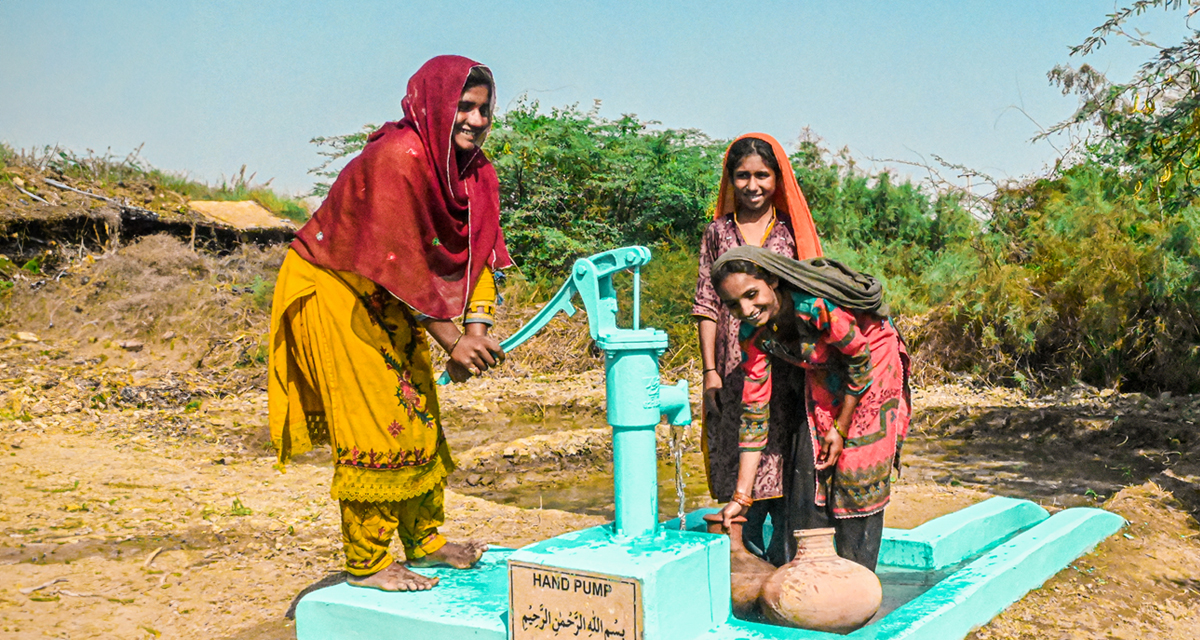
According to the UN almost 44% of the population in Pakistan lacks access to safe drinking water.
Climate change has led to erratic rainfall patterns and glacial melt, further straining its water resources. Over-extraction of groundwater and pollution exacerbate the situation, leaving rural communities and urban areas alike struggling for access to clean drinking water. This has led to a steady increase in the risk of waterborne diseases.
Pakistan's per capita water availability has plummeted from 5,000 cubic meters in 1951 to less than 1,000 cubic meters today, signaling an urgent need for conservation and sustainable water management.
To address the pressing water crisis and ensure communities have access to safe drinking water, we are developing sustainable water facilities for households and schools in underserved areas. By combining technology, community involvement, and education, we delivered innovative solutions, and empowered families in Pakistan.

38,375
people were provided access to clean water in Pakistan
Chad

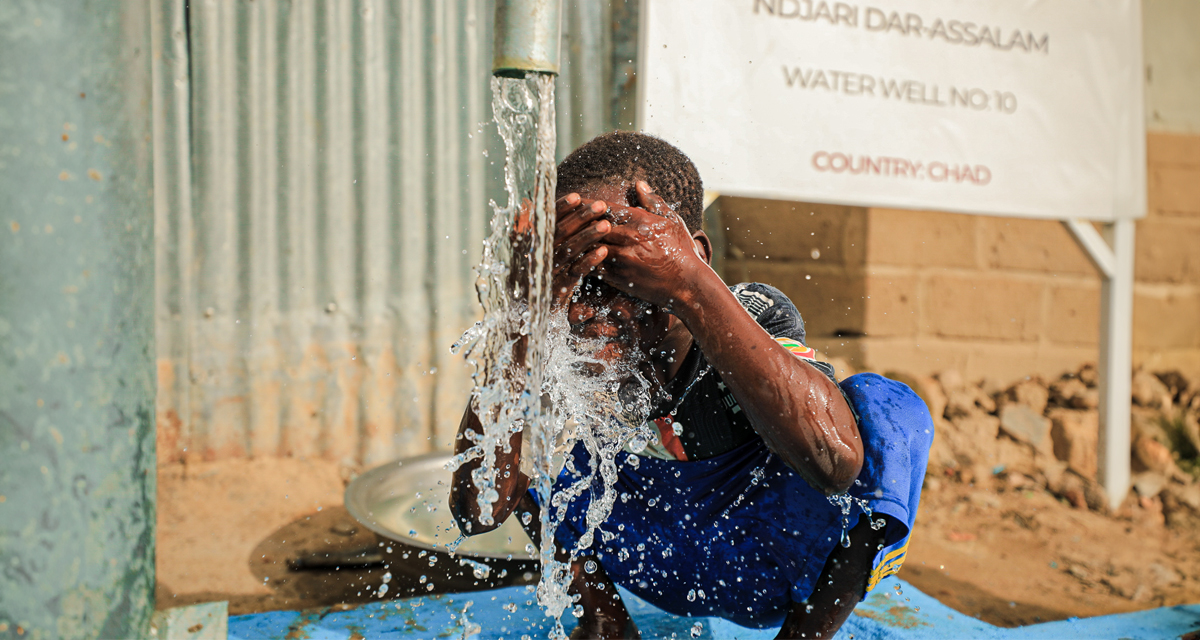
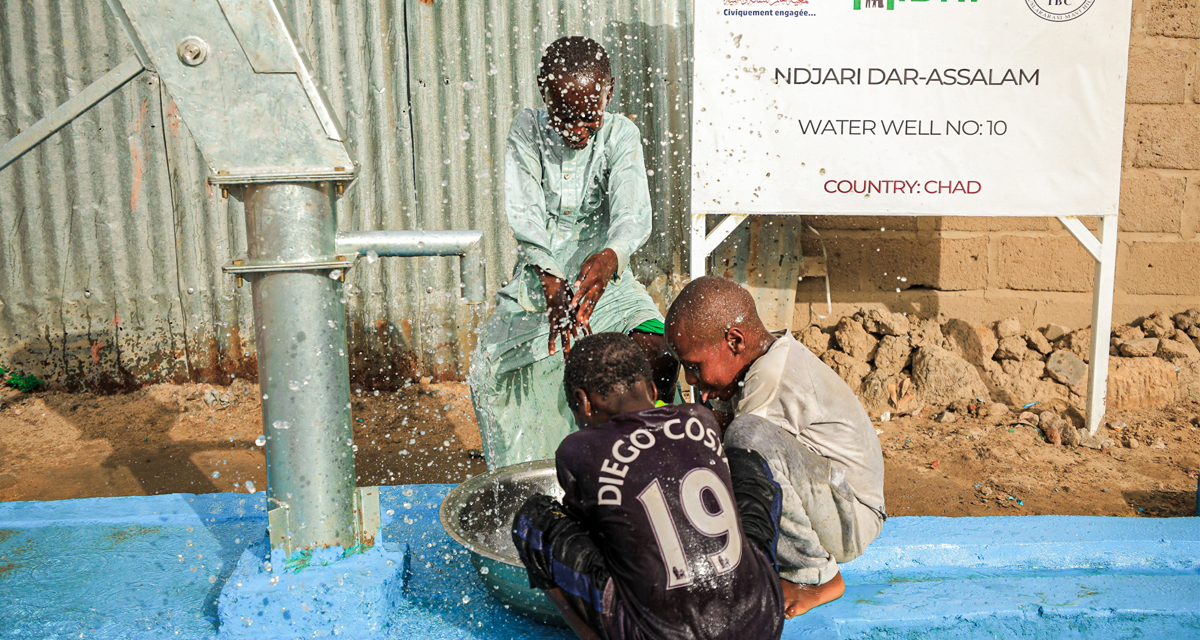

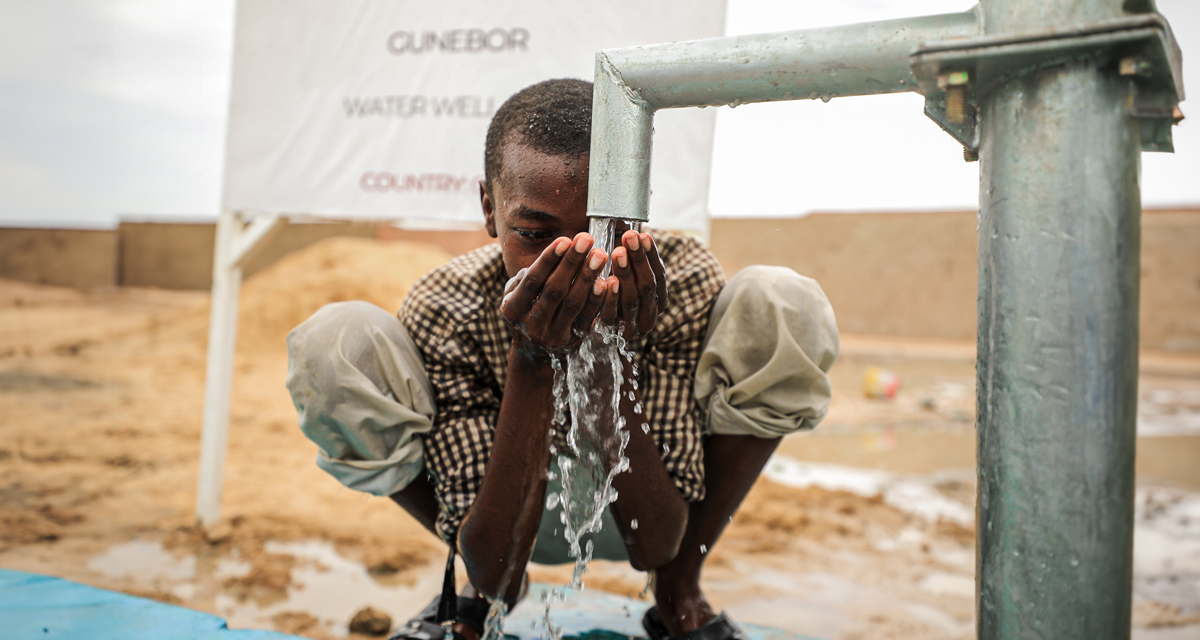

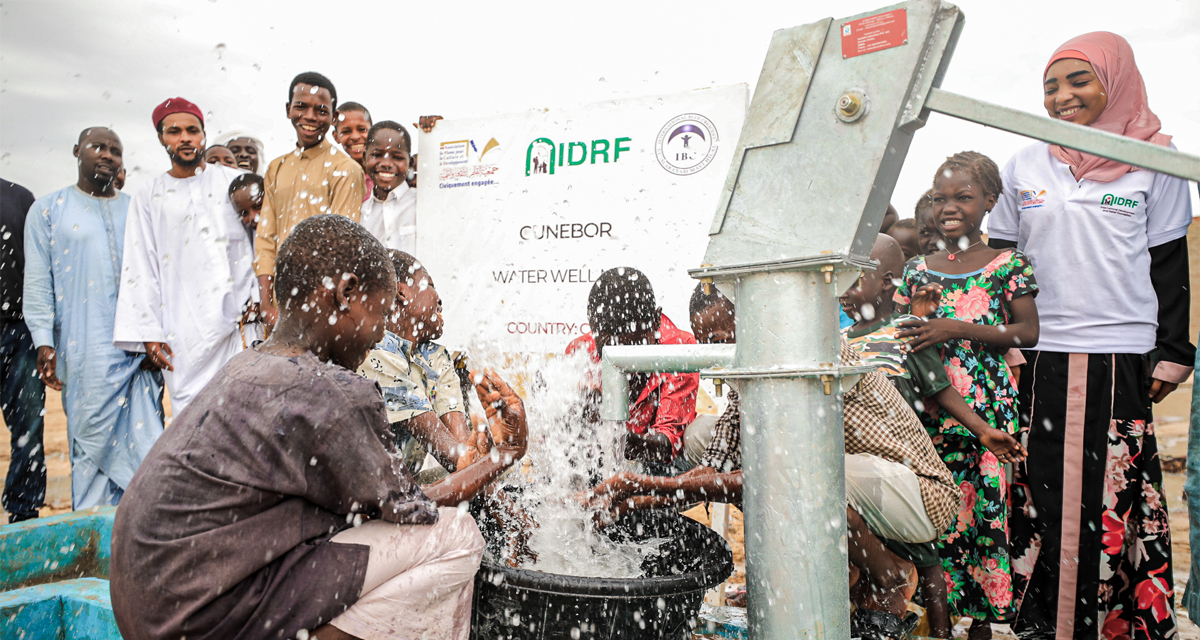

Over half of Chad's population lacks access to clean and safe drinking water, according to the United Nations.
The country faces a severe water crisis driven by persistent scarcity, inadequate access to safe drinking water, and significant challenges in sanitation and hygiene. These issues stem from a combination of factors, including harsh climate conditions and socio-economic challenges. Inadequate water infrastructure, such as a lack of wells and water treatment facilities, increases the risk of waterborne diseases, which further exacerbates the crisis. This disproportionately affects vulnerable groups like women and children, who often spend hours fetching water.
Throughout 2024, we have provided clean water, hygiene, and sanitation services to 59,722 people across Chad, helping alleviate some of these critical challenges.

59,722
people supported in Chad
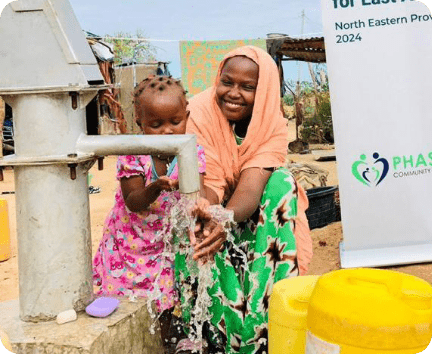
Water and food are our daily sources of happiness. I am so grateful because I no longer have to walk long distances in search of water; we have what we need right here.
Sakina, Kenya
Better Health, Brighter Futures
Access to healthcare is a fundamental human right.
Ensuring the right to health requires not only providing healthcare facilities, but also empowering communities with the necessary resources and training. In addition to investing in lifesaving healthcare facilities across the globe, we help communities become active agents in their own wellbeing. When they are equipped with knowledge about health, preventive care, and first aid, they become active participants in their well-being and resilience.
Training and education in healthcare create a powerful ripple effect that extends far beyond immediate benefits, improving health outcomes for generations. This long-term impact ensures that investments in training and education build a foundation of resilience, self-reliance, and sustained improvements in healthcare access and quality.

440,617
people received health care services through IDRF programs
Guyana
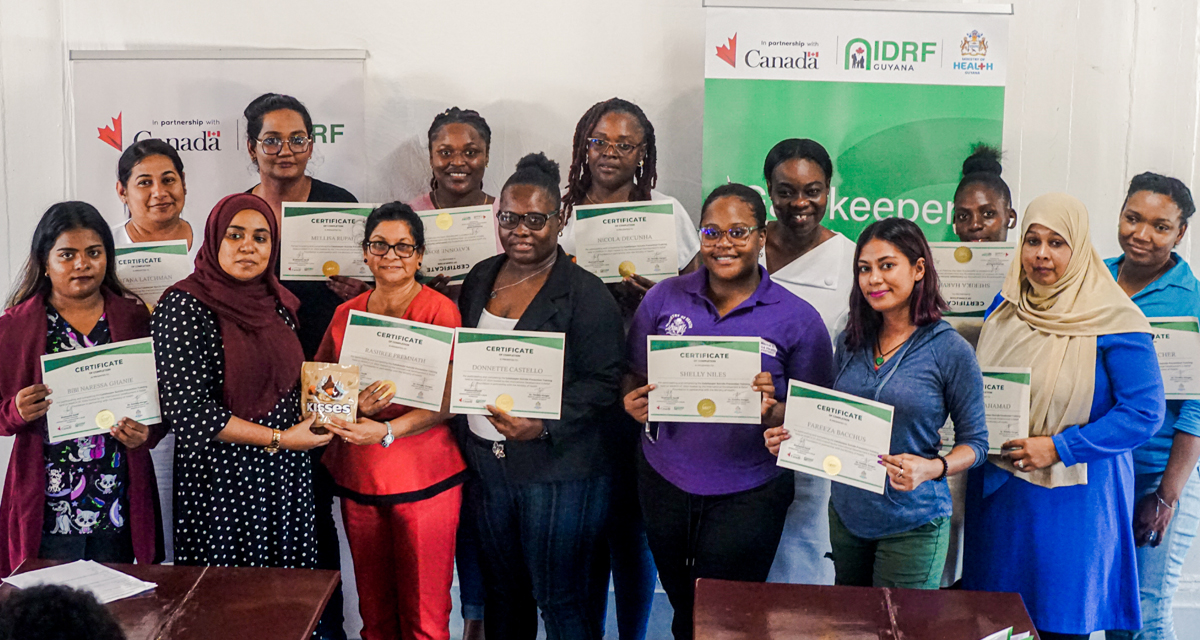
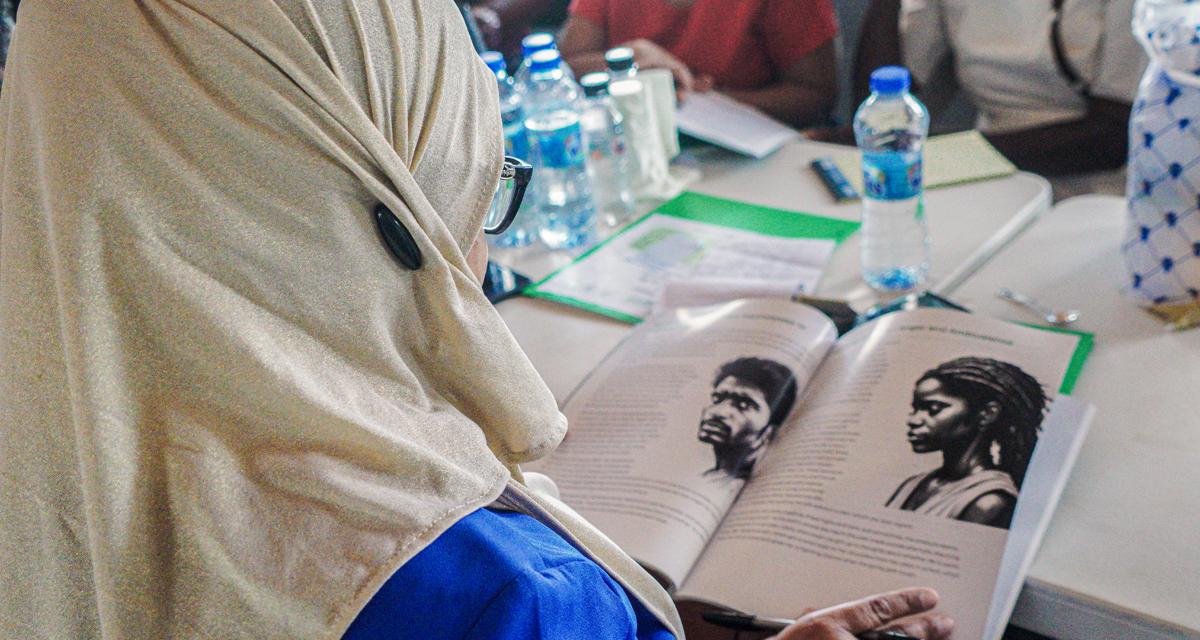
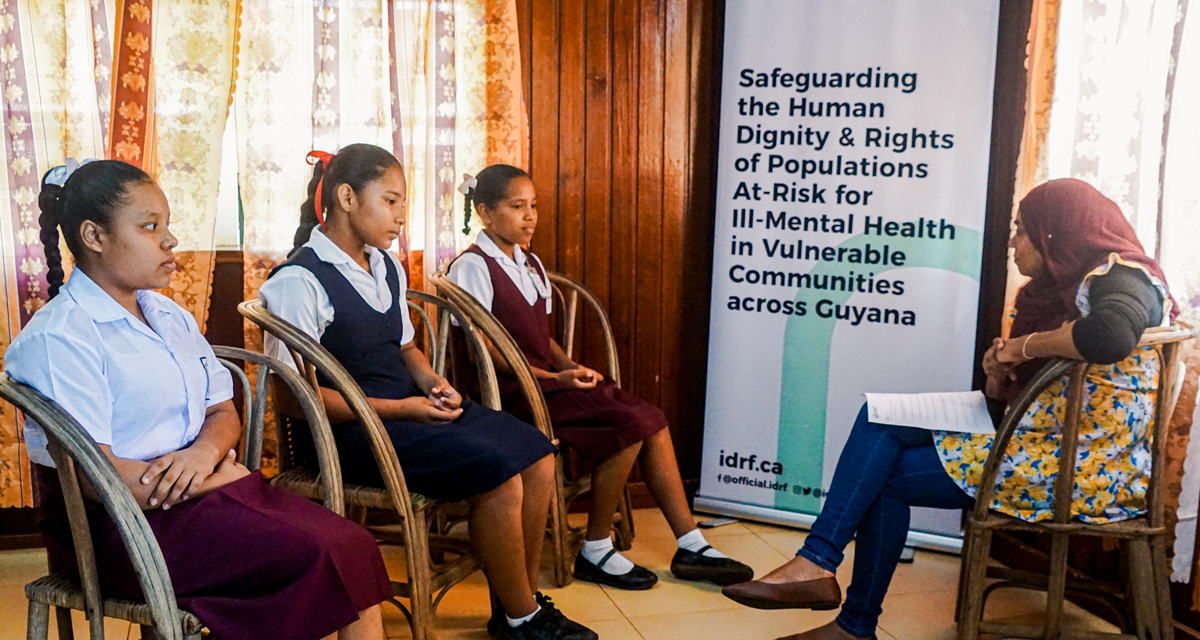



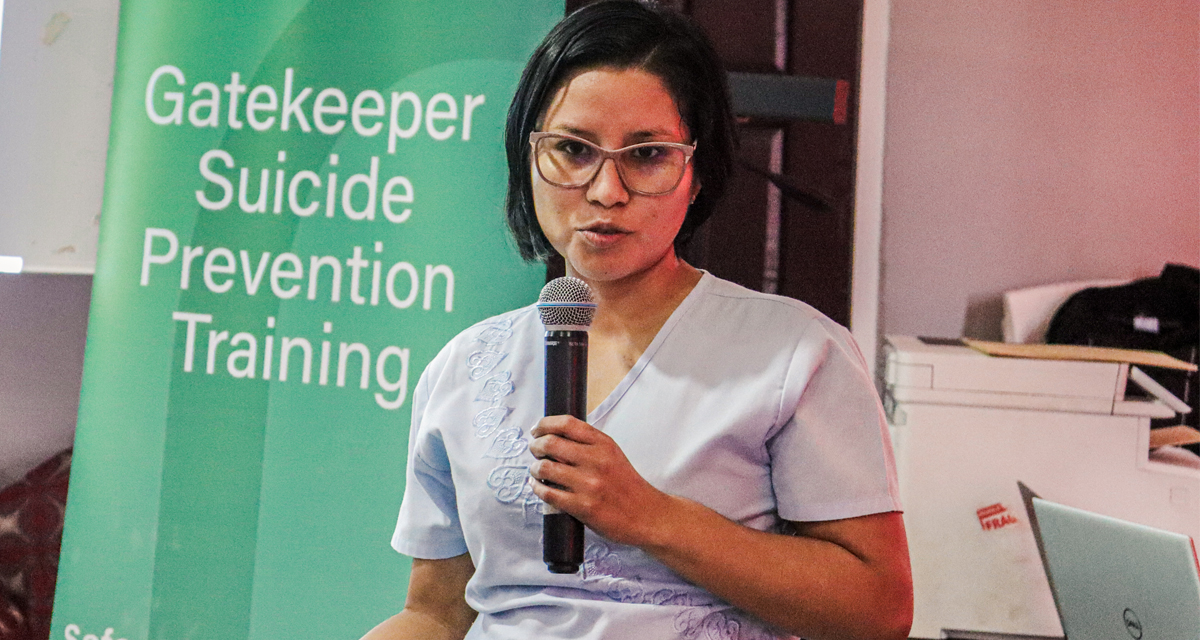

Guyana’s mental health crisis is a complex issue, fueled by a cascading effect of factors like poverty, pervasive stigma surrounding mental illness, easy access to lethal chemicals, widespread alcohol misuse, interpersonal violence, and family dysfunction.
These challenges are compounded by insufficient mental health resources, leaving many individuals without the support they desperately need. To address this crisis, we are working to reinforce mental health facilities in Guyana through innovative, community-based approaches.
Our Community Gatekeepers Program trains teachers, religious leaders, local officials, business owners, and other community members to identify and support those experiencing a mental health crisis. These gatekeepers are equipped to provide immediate intervention, connect individuals to professional resources, and foster a culture of compassion and understanding.
Our goal is to build a sustainable network that addresses mental health challenges at a grassroots level.

593
people were trained in Guyana for the Mental Health Project
Pakistan
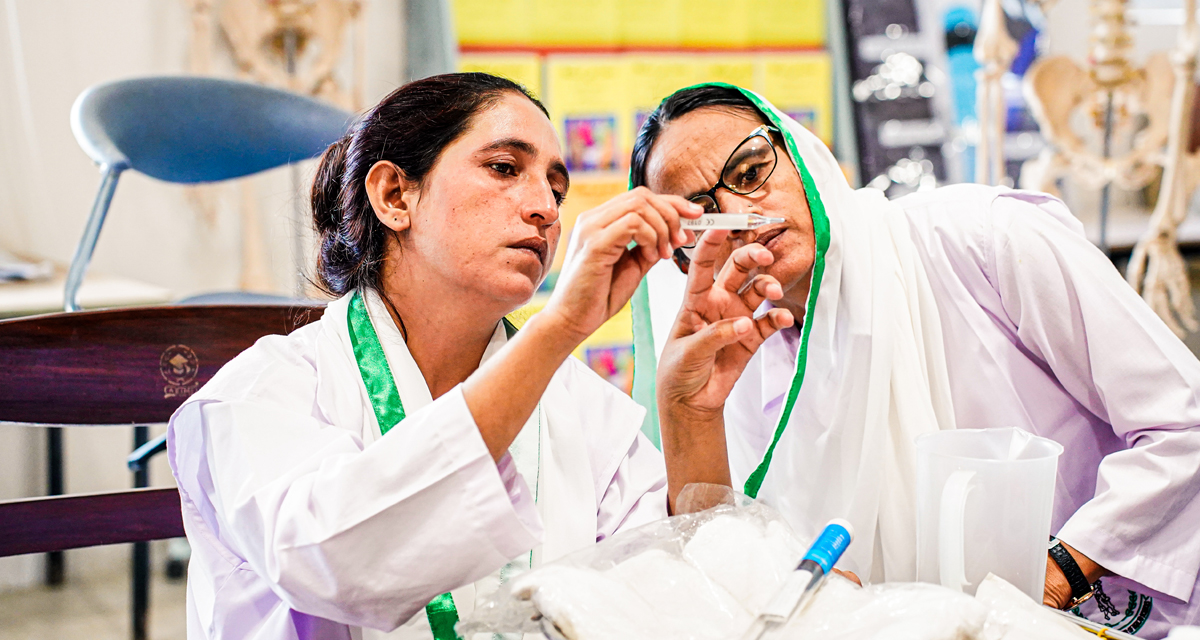

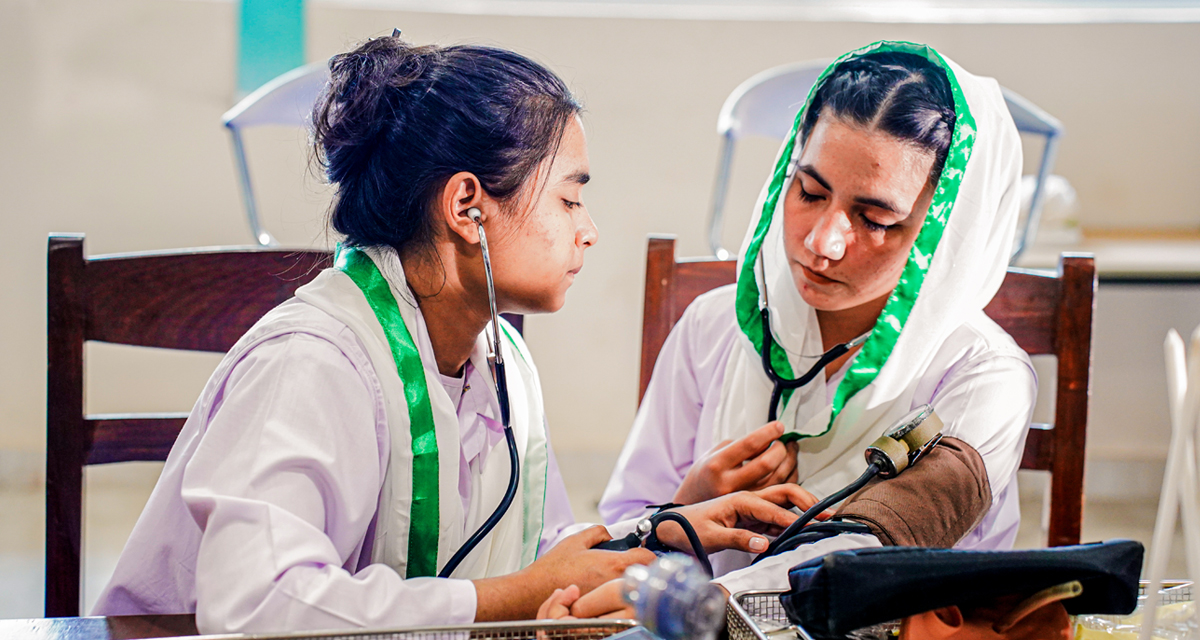
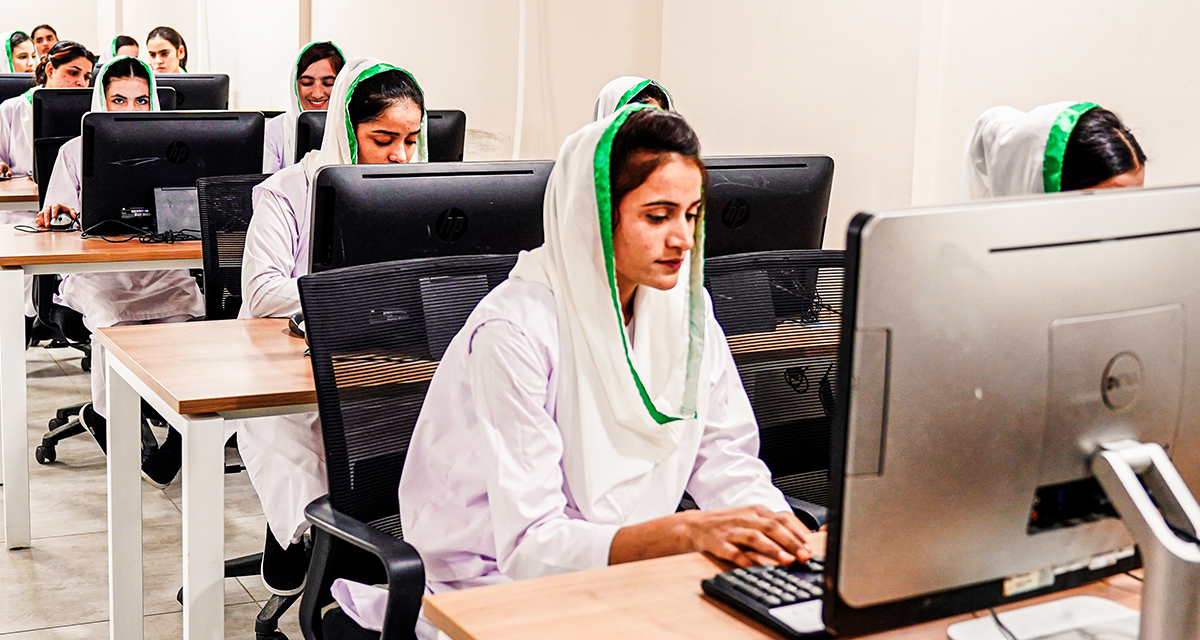
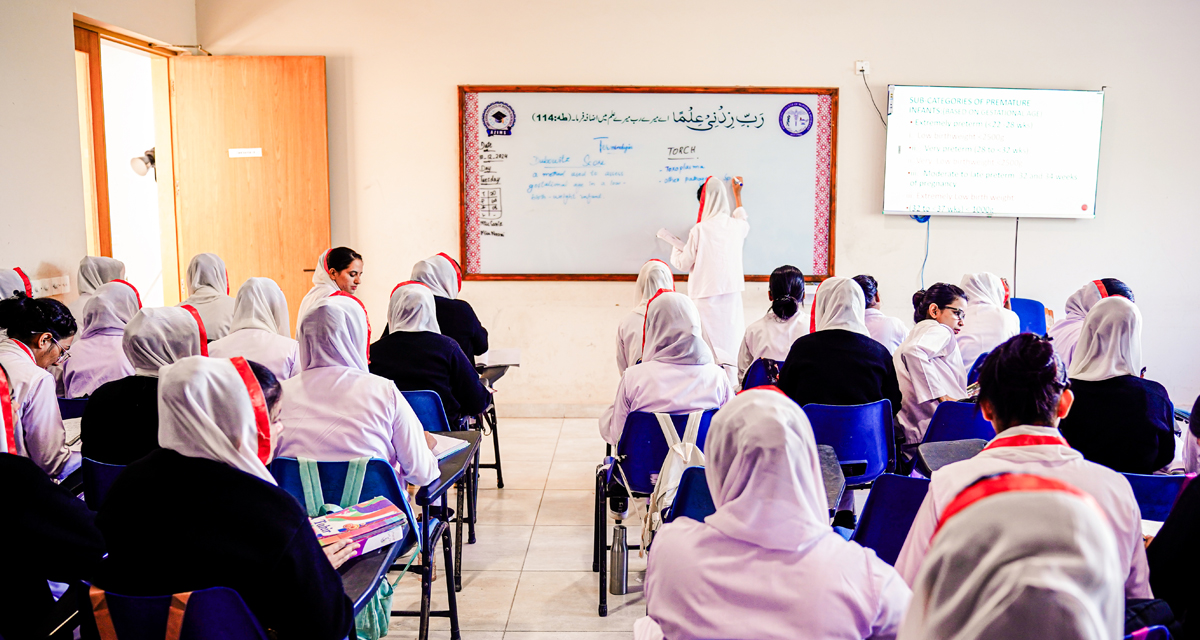
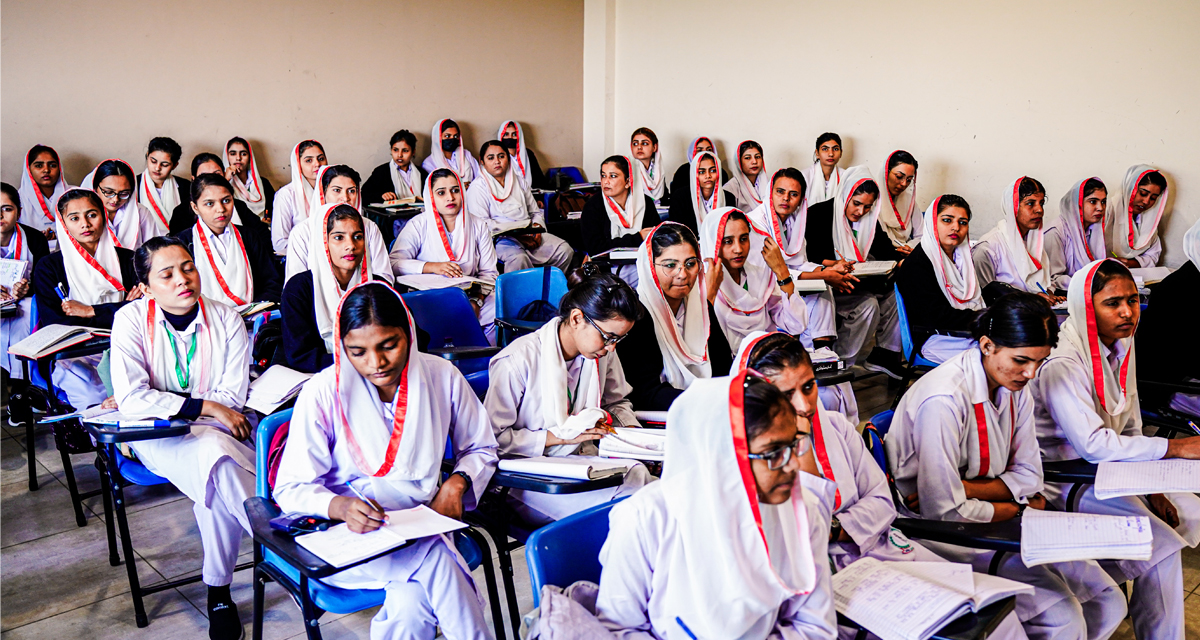

According to UNFPA Pakistan, every 50 minutes a woman dies due to pregnancy complications. This alarming statistic underscores the urgent need for accessible and skilled maternal healthcare services.
Many deaths are due to preventable causes such as hemorrhage, sepsis, and obstructed labor, often exacerbated by delays in accessing care in rural and underserved areas. Training midwives is a critical step in addressing this crisis.
Midwives play a vital role in providing prenatal care, managing safe deliveries, and recognizing early signs of complications to ensure timely referrals. They also serve as trusted community health workers, educating families about maternal health and hygiene.
By expanding the midwifery workforce, especially in remote regions, we’re empowering women in Pakistan.

13,777
women supported by midwives trained through IDRF
India
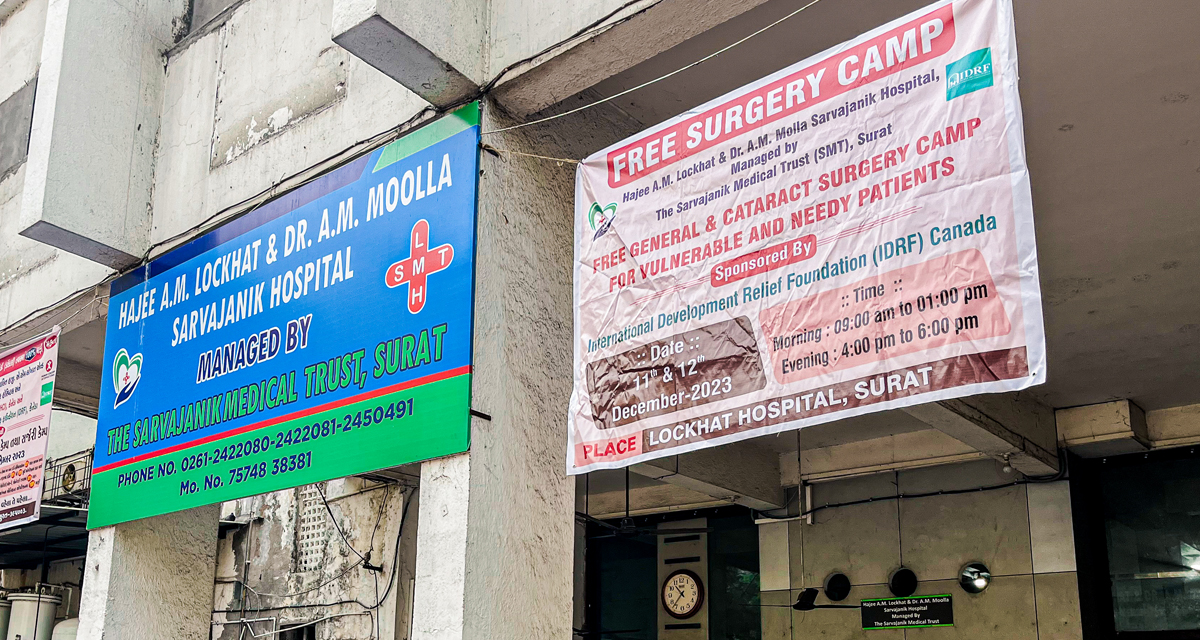

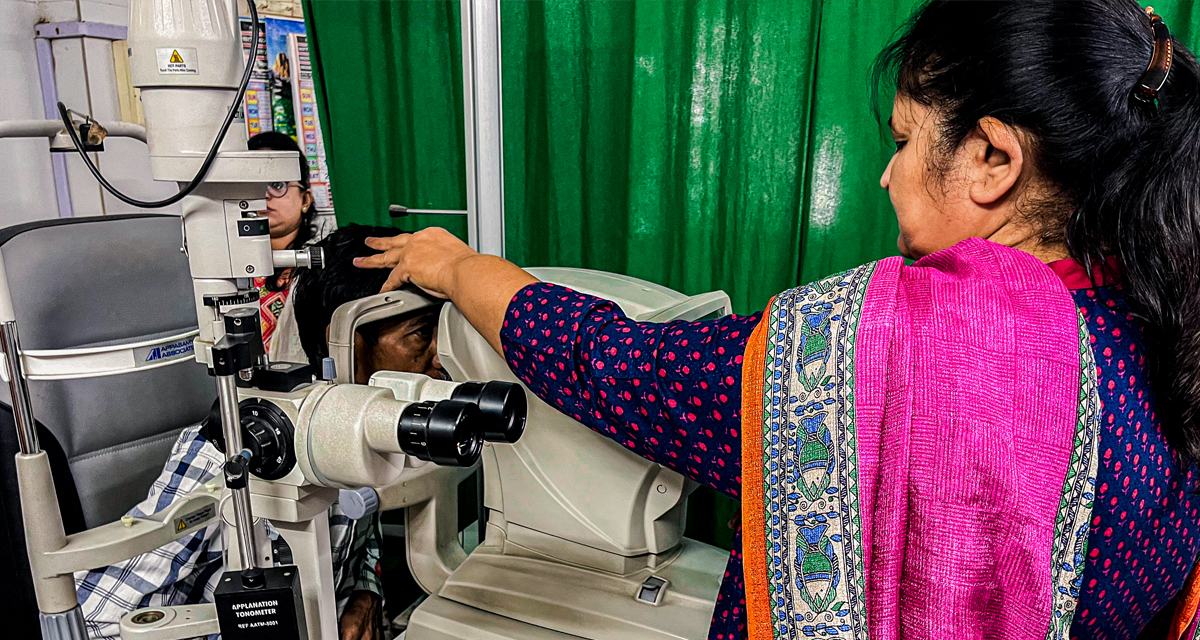
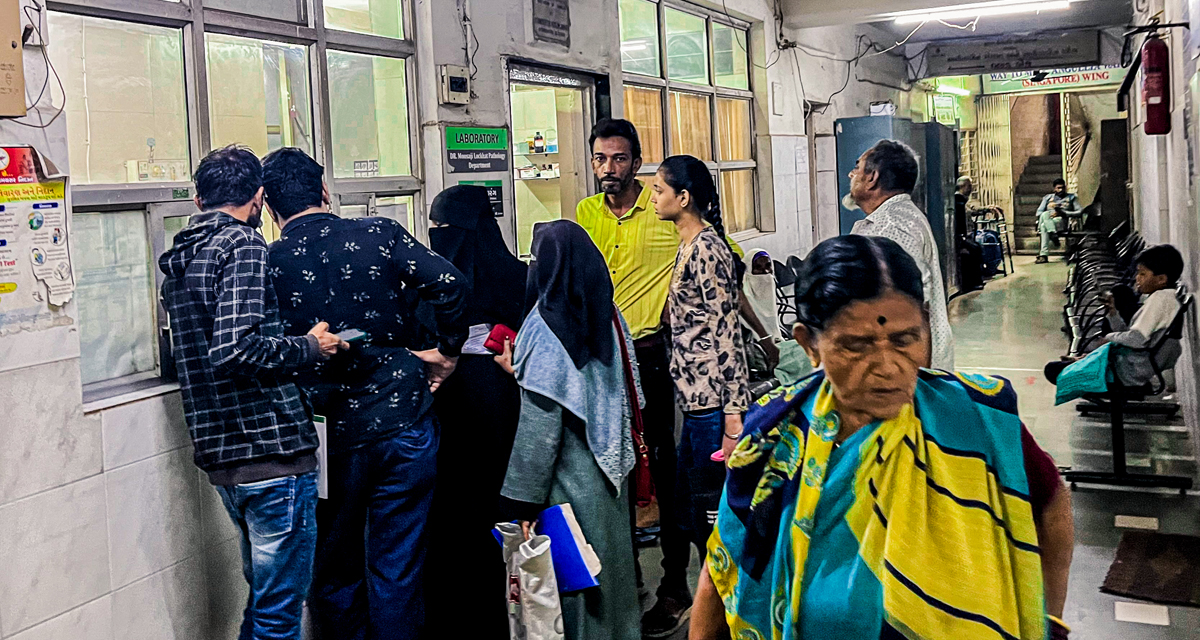
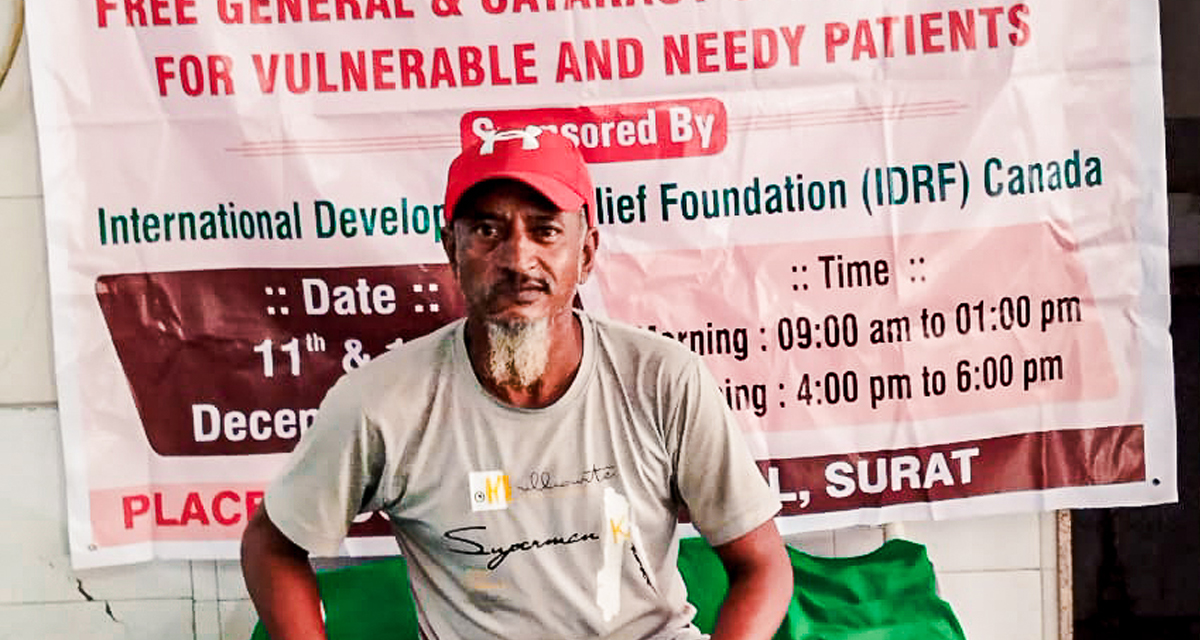
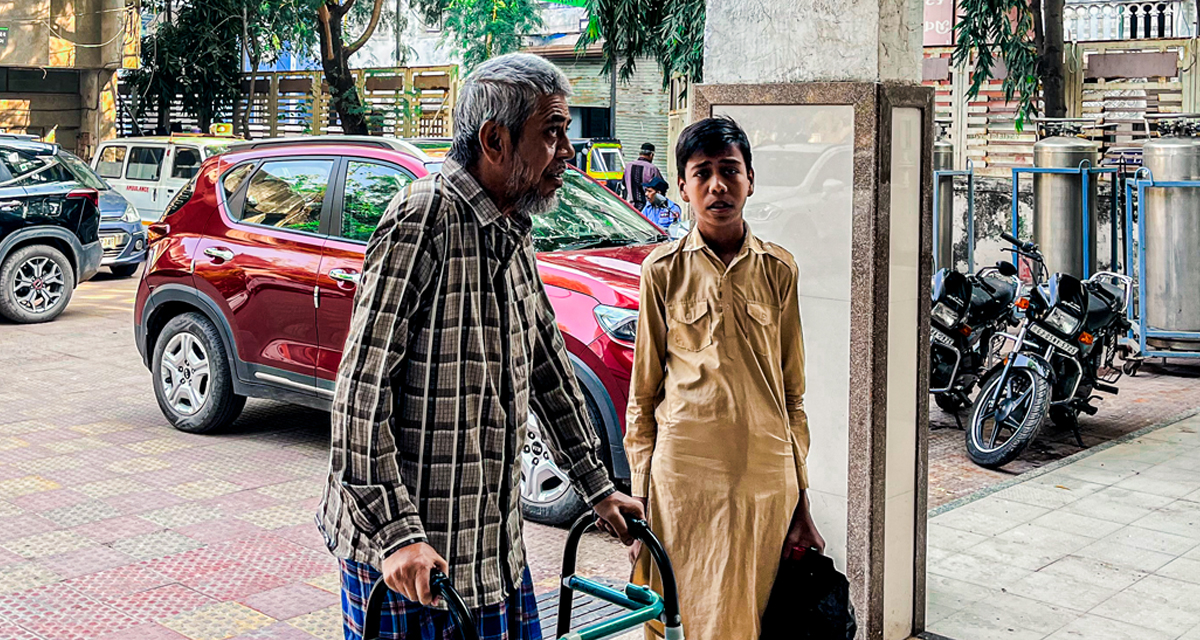
India is facing a significant healthcare crisis, with millions of people, especially in rural areas, lacking access to quality medical care.
The country’s healthcare system is burdened by inadequate infrastructure, an insufficient number of healthcare professionals, and a growing gap between demand and available services.
Our goal is to address these challenges by constructing world-class, well-equipped, multispecialty clinics that bring accessible and affordable healthcare to underserved populations. By providing quality primary health care services, we aim to bridge the gap, ensuring that underserved communities receive the care they need.

11,584
people were supported through health projects in India
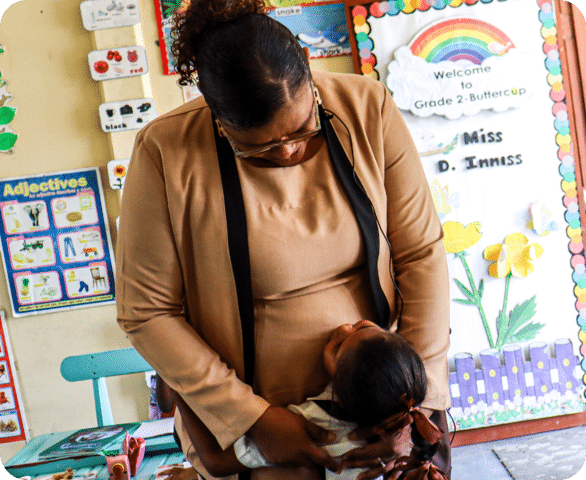
This year, attending the Gatekeepers workshop on mental health and suicide prevention inspired me to become more actively involved in my community. The program provided me with valuable tools and skills to support individuals facing mental health challenges.
Abegale, Guyana
Education is the Future
Everyone deserves the opportunity to learn, dream, and thrive.
Through IDRF’s educational and vocational training programs, we are committed to providing children and youth with the essential knowledge and skills to help them become self-sufficient and confident in pursuing their dreams.
Our “Brighter Futures” approach goes beyond academics. In addition to schooling, we ensure that children have access to clean water, nutritious meals, school supplies, and psychosocial support. These resources create a nurturing environment where they can focus on learning and growing to their full potential. This year, 111,073 people received educational support through IDRF.

111,073
people received education support
Pakistan

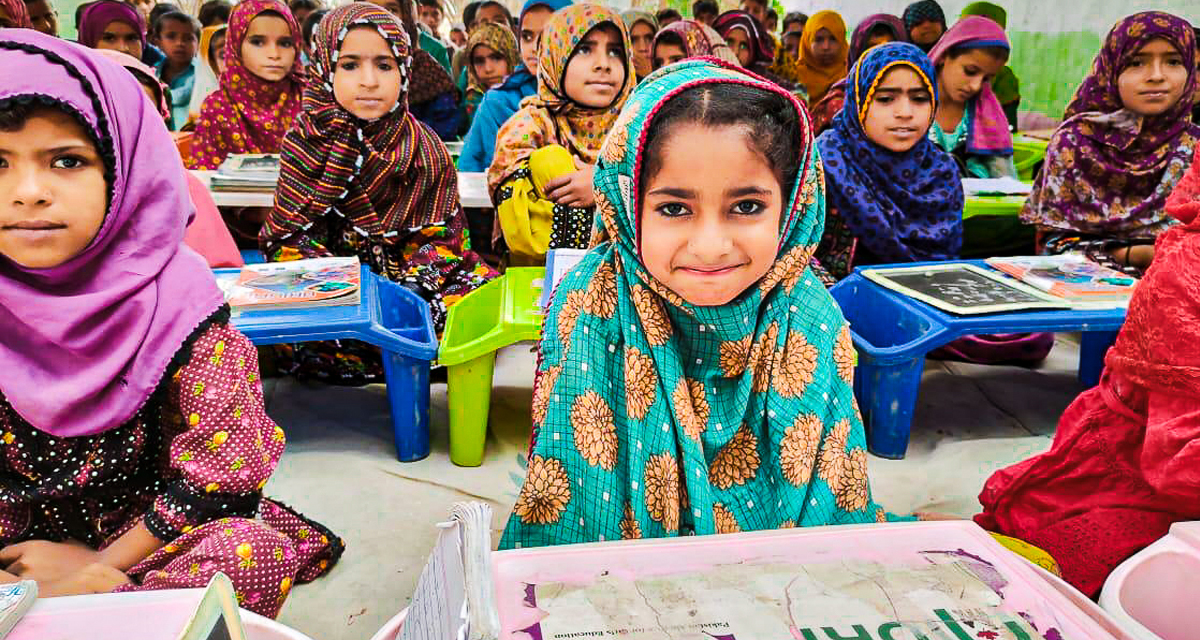
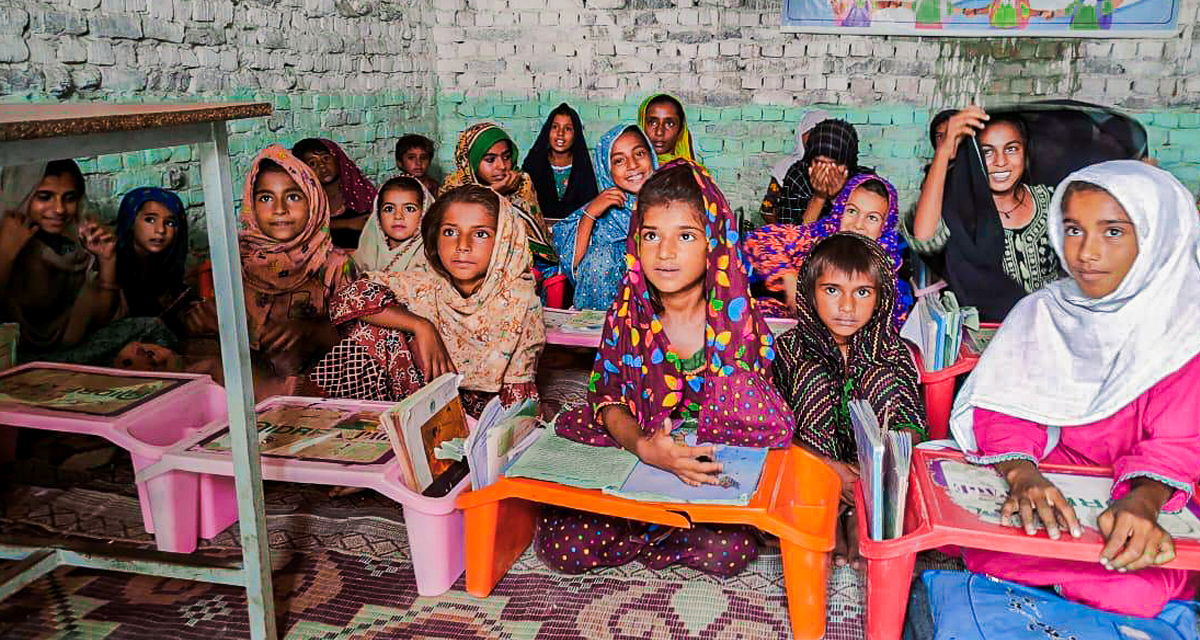

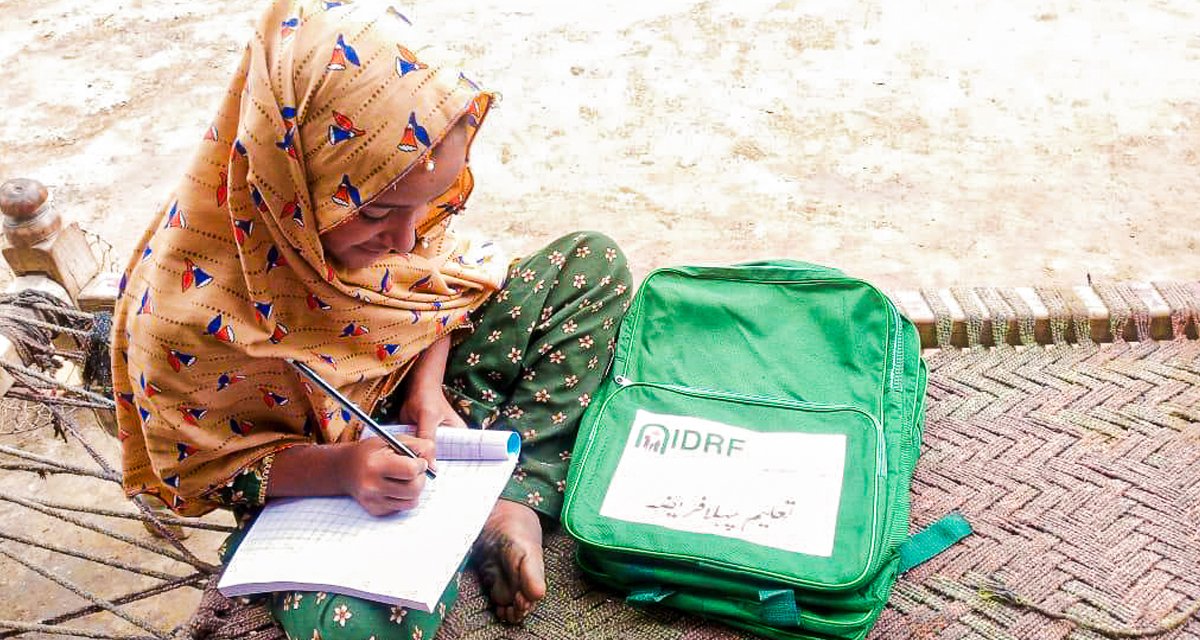
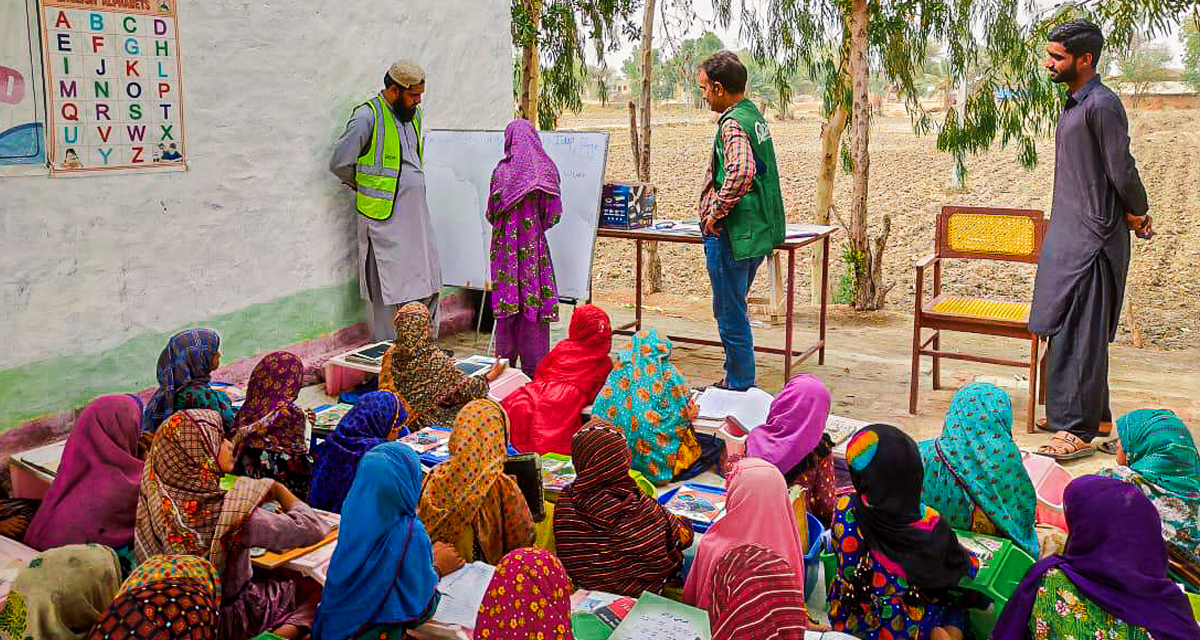
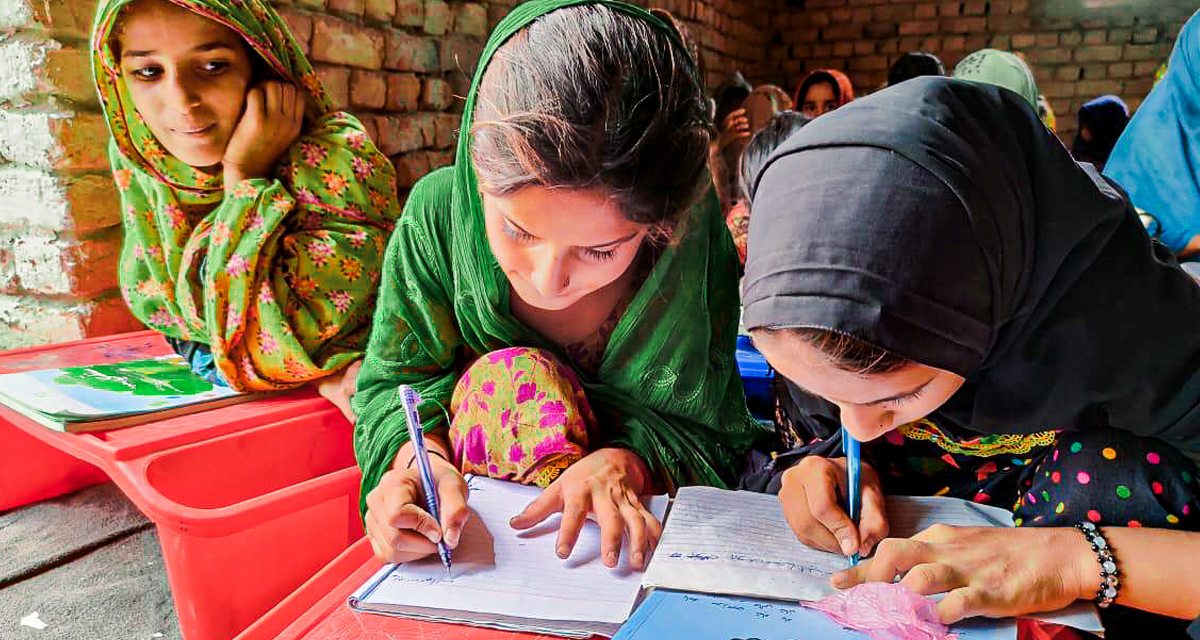

Children in Pakistan face severe challenges, including poverty, malnutrition, limited access to education, and widespread child labour.
The impacts of climate change add to Pakistan’s challenges with frequent floods, heatwaves, and droughts affecting the economy, agriculture, and public health.The 2022 floods alone have caused mass devastation across the country.
With your support, we have provided students in Kaghan Valley with quality education and essential resources to enhance their learning experience.
In addition, we have launched Education in Emergencies, establishing 42 temporary learning centers that offer education, programs for young girls, WASH, nutrition, and psychosocial support, with a special focus on programs for young girls. This initiative has reached thousands of children across Kaghan Valley, Karachi, Punjab, Sindh, and Balochistan.

34,500
people were provided access to education in Pakistan
Turkiye
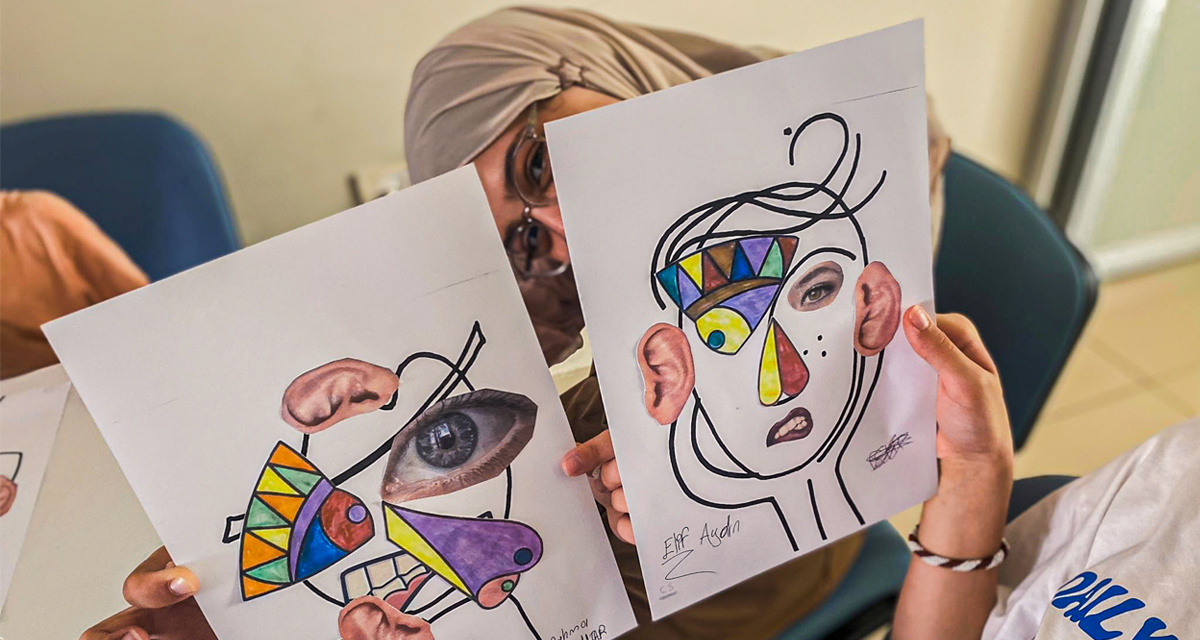





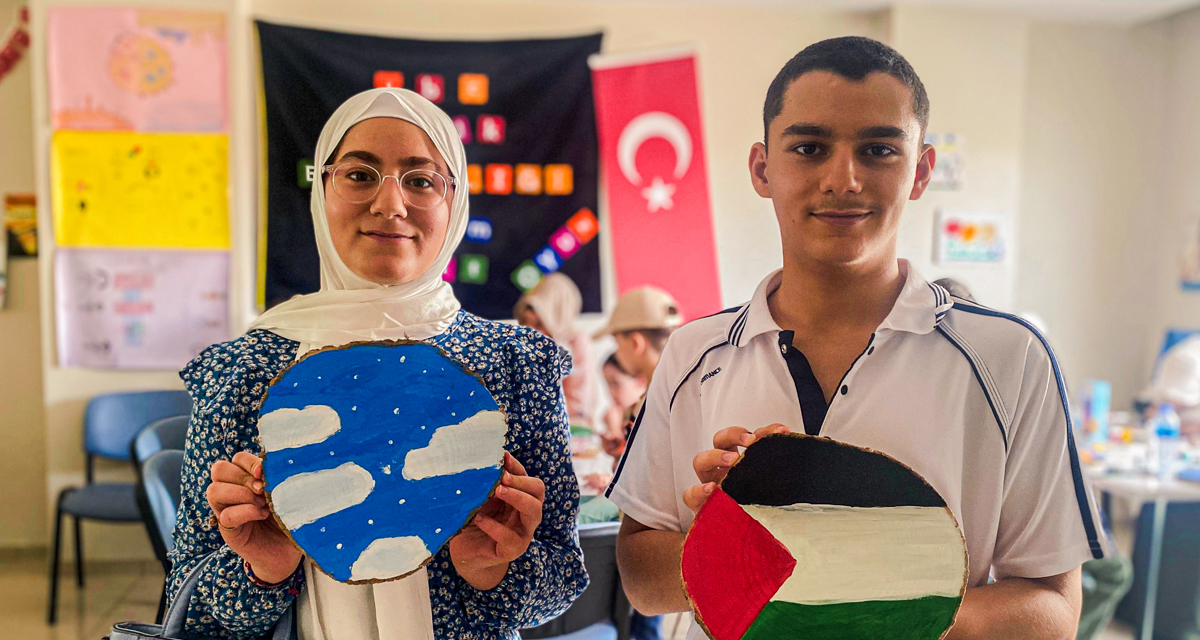
Turkiye is home to the largest population of Syrian refugees, facing numerous challenges as they rebuild their lives in a new environment.
With over 3.4 million Syrians now residing in Turkey, the majority live in urban areas alongside other refugee groups in search of safety.
In response to urgent needs for psychosocial support, education, and skill development, essential services have been implemented to assist both refugees and the host community in coping with these challenging circumstances.
Programs focus on creating child-friendly spaces, providing vocational training, and offering language courses, which help build connections and a sense of security. Through these initiatives, refugees and local communities alike are better equipped to rebuild and thrive together.

27,360
people were provided access to education in Turkiye
Somalia
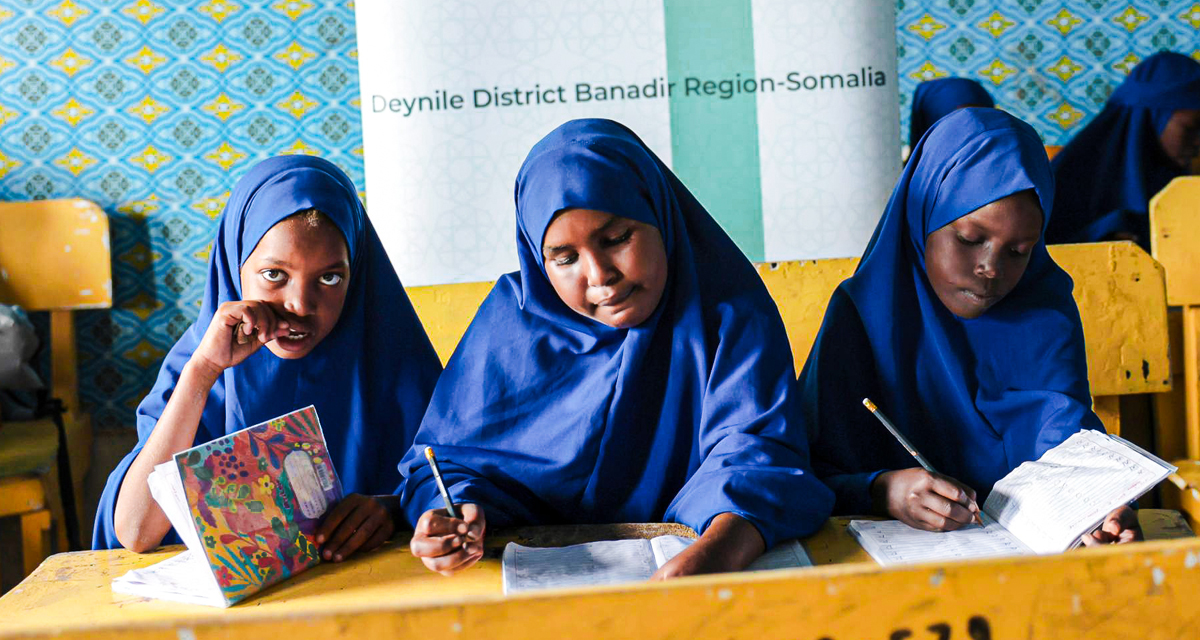

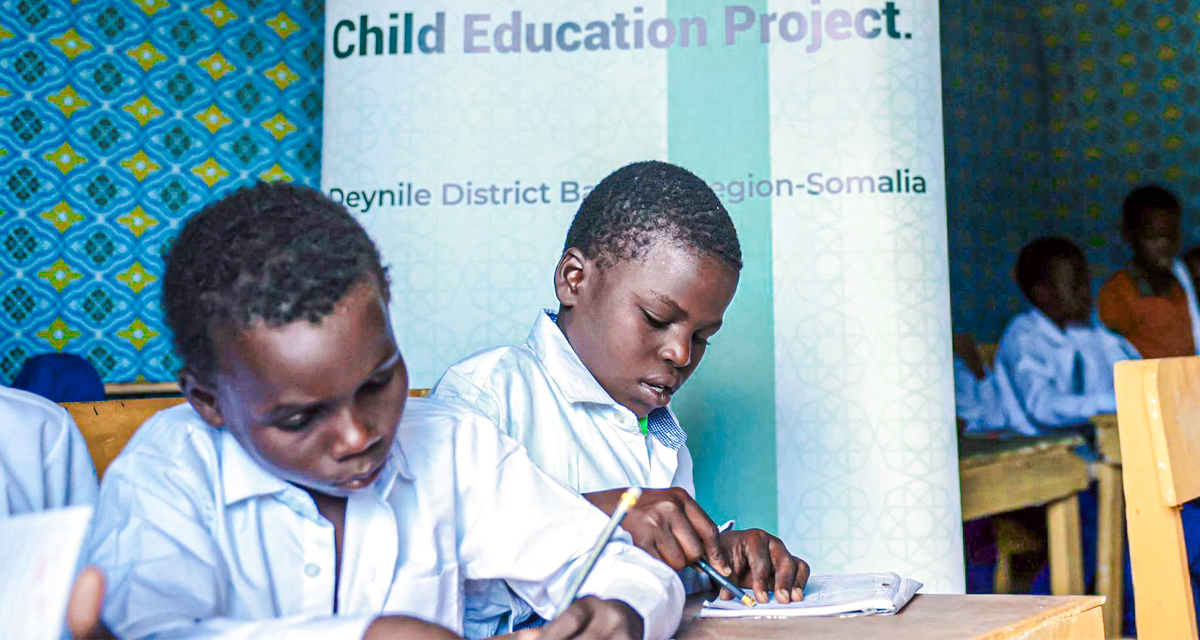

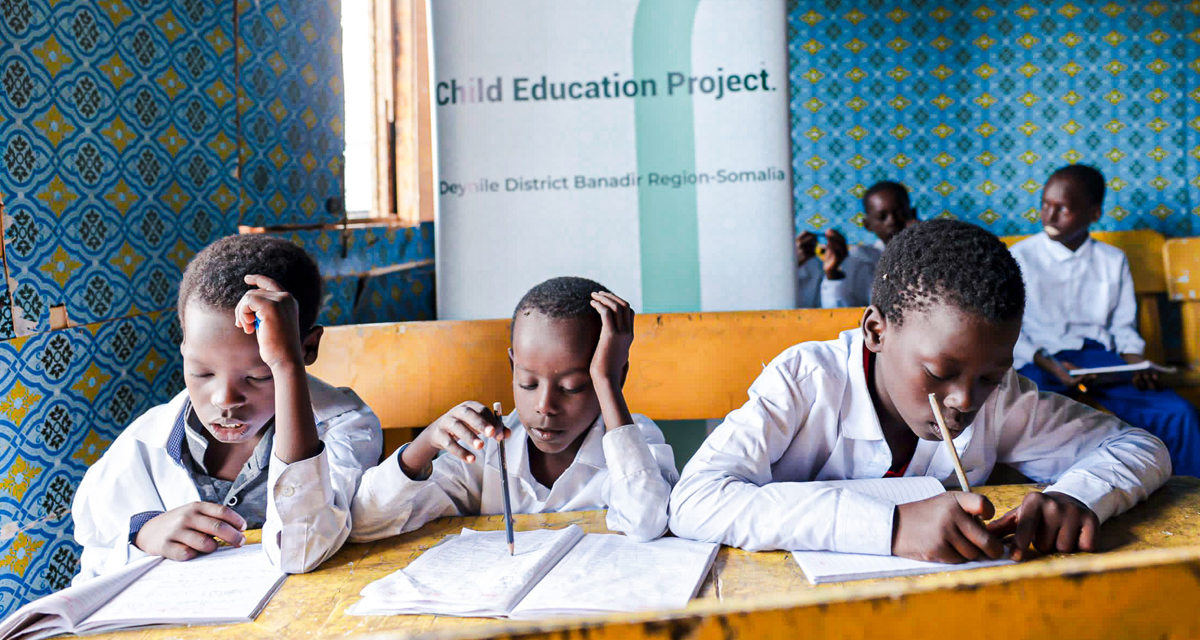
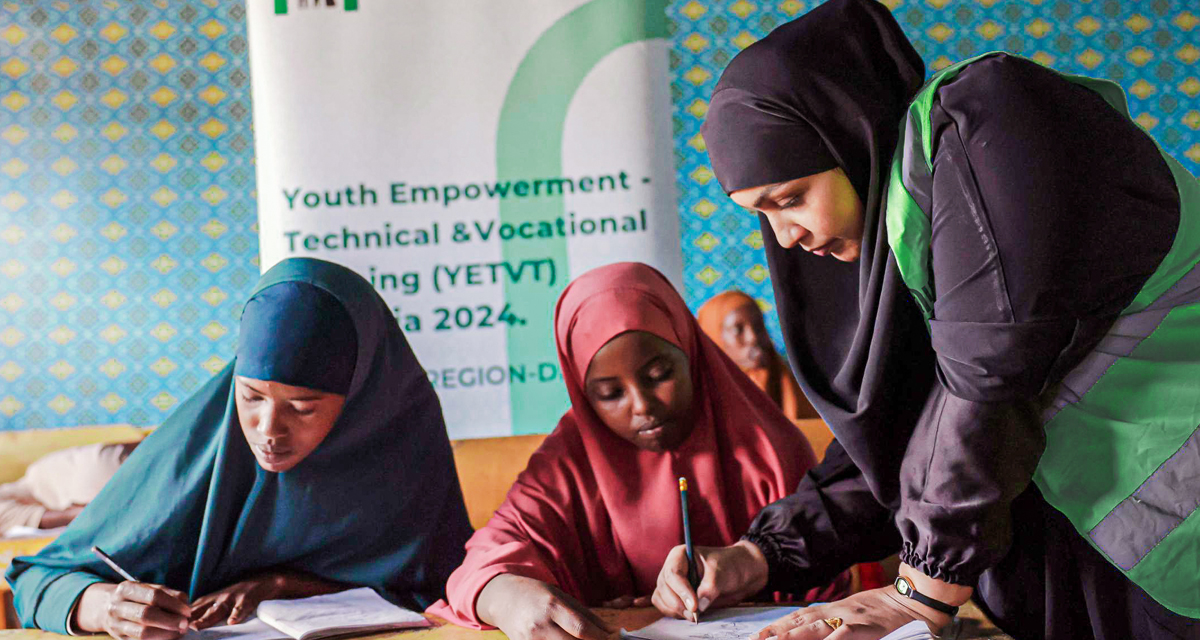
With conflict spanning decades, the threat of displacement, natural disasters, and high costs have left over 3 million children in Somalia without an education.
Poverty and the lack of supportive school environments drive high dropout rates, with families often forced to prioritize food over school supplies or hygiene kits.
Overcrowded classrooms, inadequate sanitation, few trained teachers, and limited learning materials make learning difficult, leaving many children unable to pursue higher education.
With your support, we provided educational programs for IDP children in Somalia, providing care, school supplies, and free breakfast. Additionally, our vocational programs help youth develop skills in technology, tailoring, as well as beauty and salon services.

5,000
people were provided access to education in Somalia
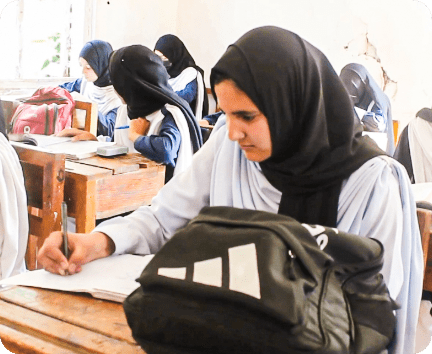
Against a backdrop of poverty and ongoing recovery challenges, rural communities in Pakistan are among the most affected. The scarcity of educational facilities, particularly for girls, furthers the cycle of poverty.
Aliya
Training for Their Future
Everyone deserves the opportunity to achieve financial independence and take charge of their future.
To address this, training programs and access to resources are essential in empowering youth and adults alike to develop valuable skills. IDRF’s programs provide participants with technical expertise, job readiness, and entrepreneurial capabilities, fostering economic independence.

112,674
people received training and support
Yemen
farmers in Yemen were supported
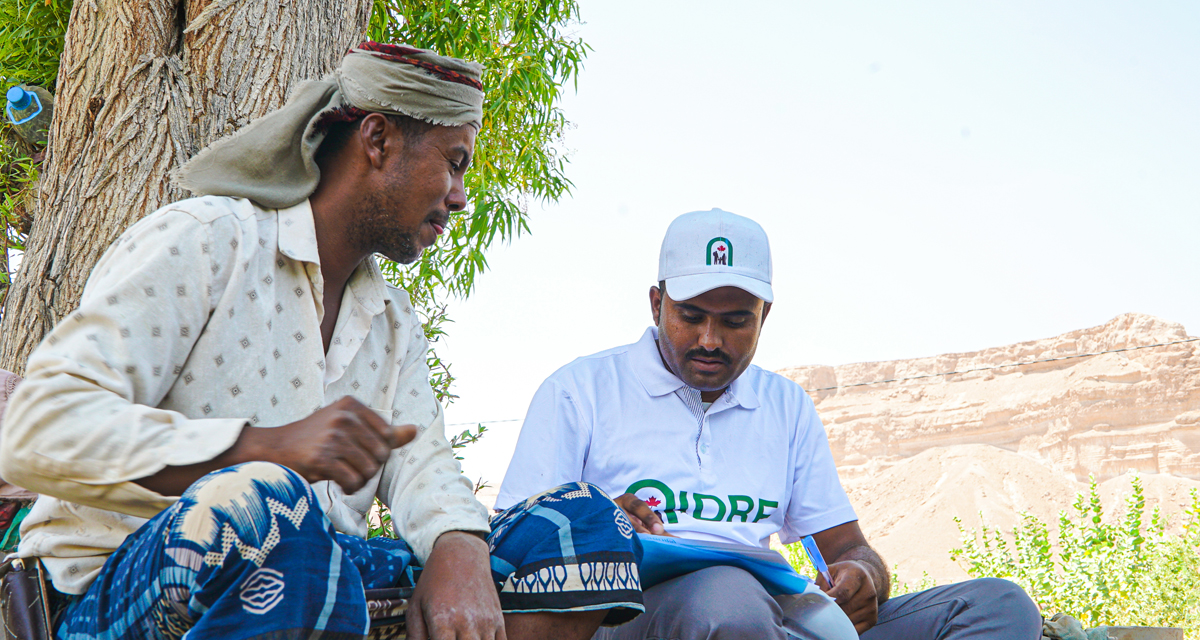


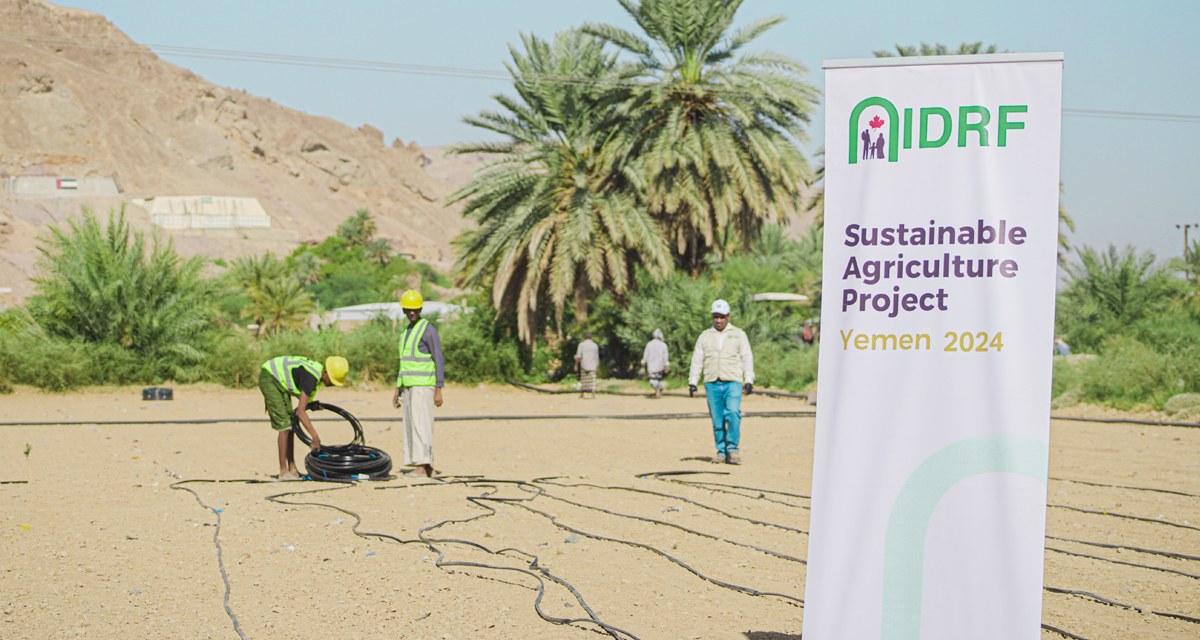
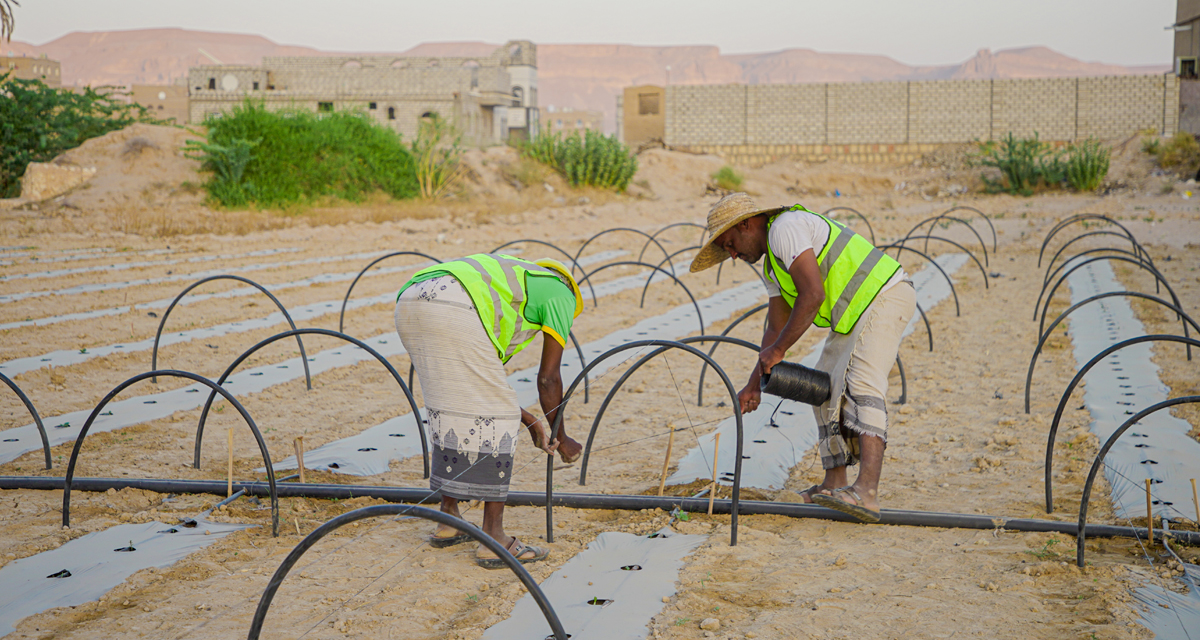
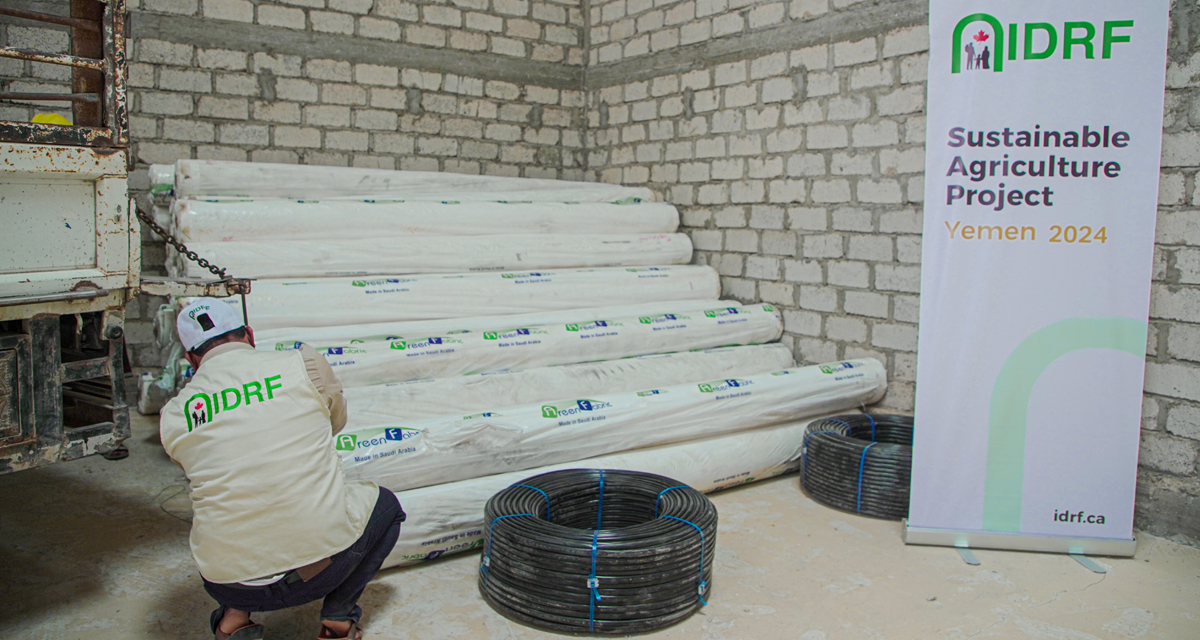

Yemen continues to grapple with conflict, food insecurity, and economic collapse.
Compounding these challenges is a significant gap between population growth and agricultural productivity, which has severely impacted livelihoods. Youth and women, in particular, face dwindling employment opportunities in agriculture.
IDRF is promoting sustainable agricultural development to revitalize the sector and empower small farmers. Through holistic capacity-building, we aim to integrate farmers into the agricultural labor market. These efforts not only enhance local food production but also create sustainable employment opportunities, helping to rebuild Yemen’s economy and support vulnerable communities.

88,000
Afghanistan
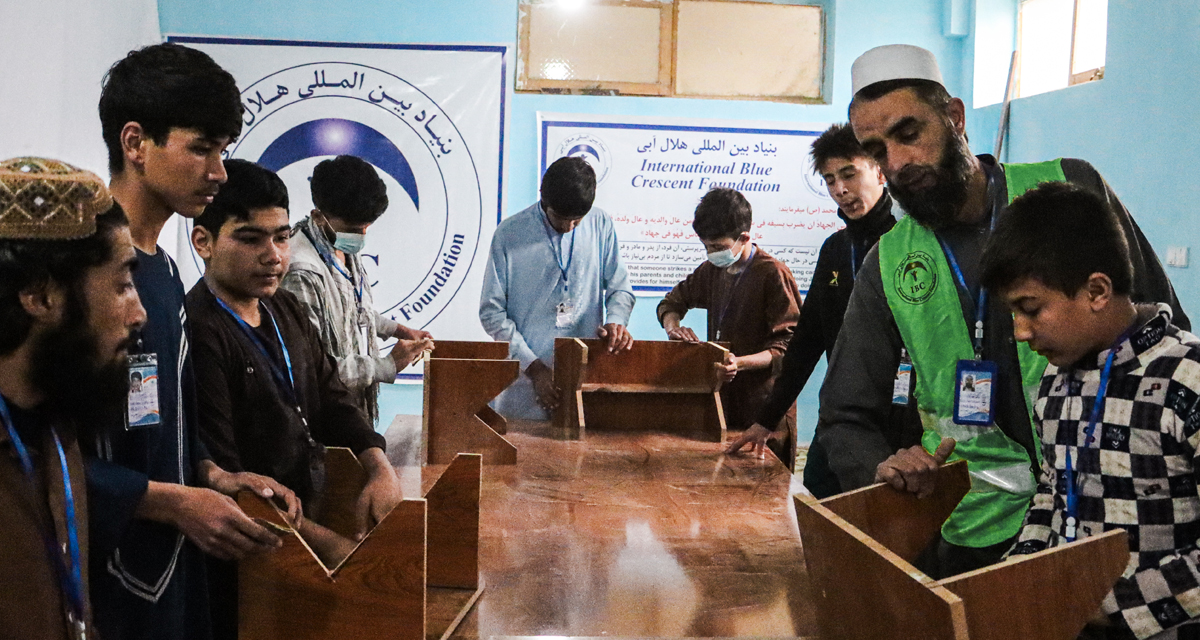
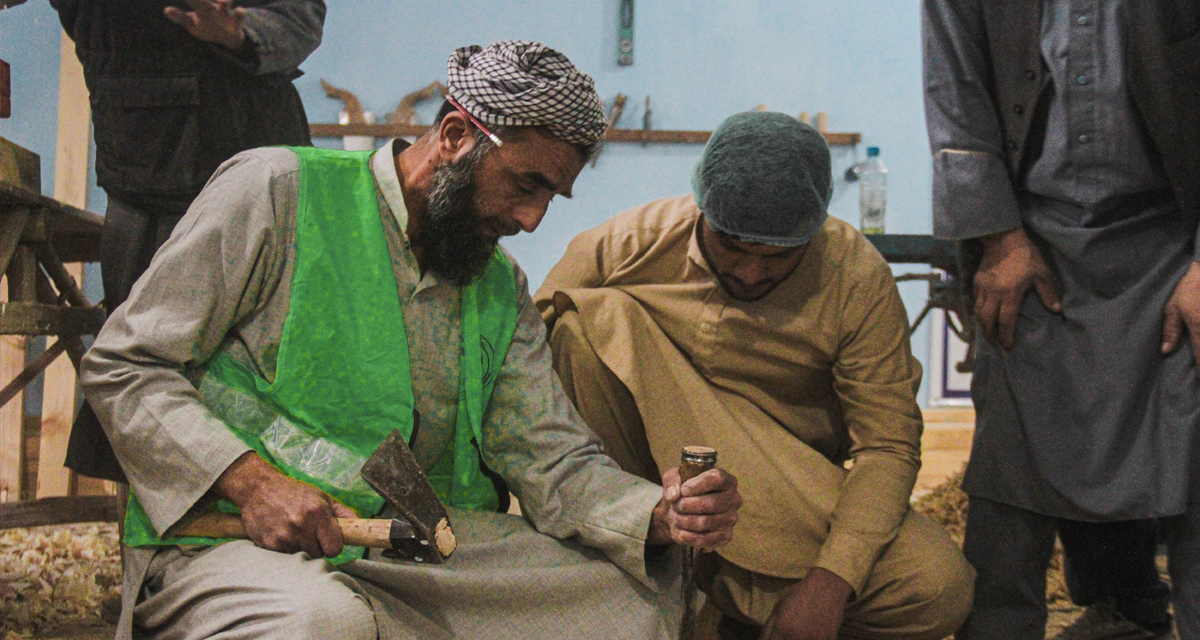

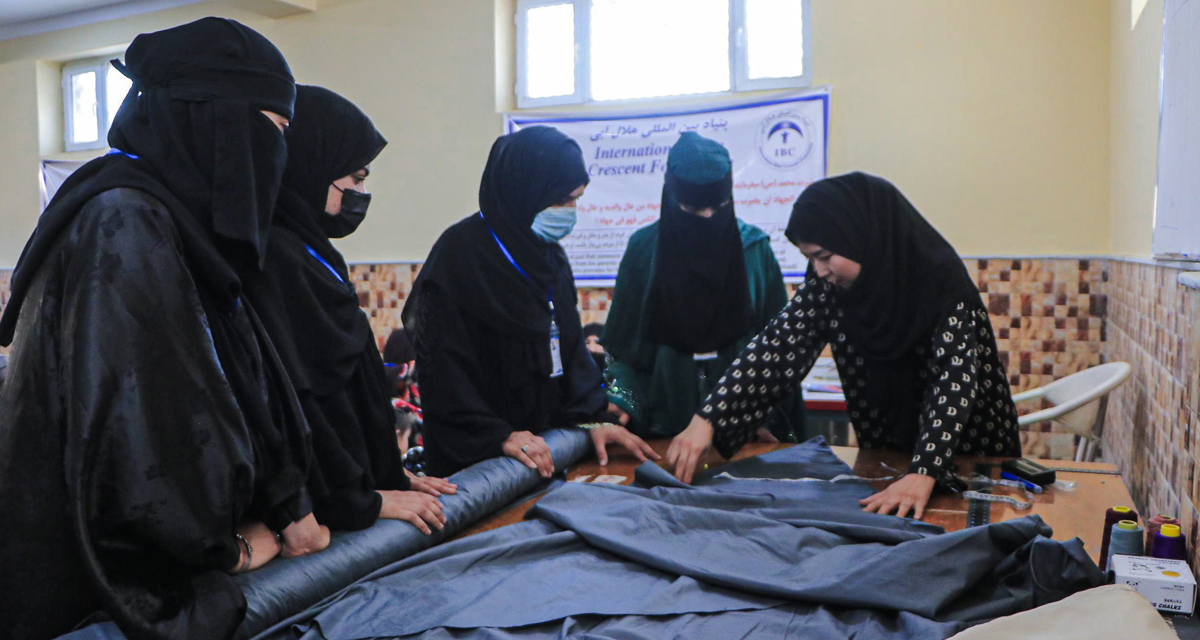
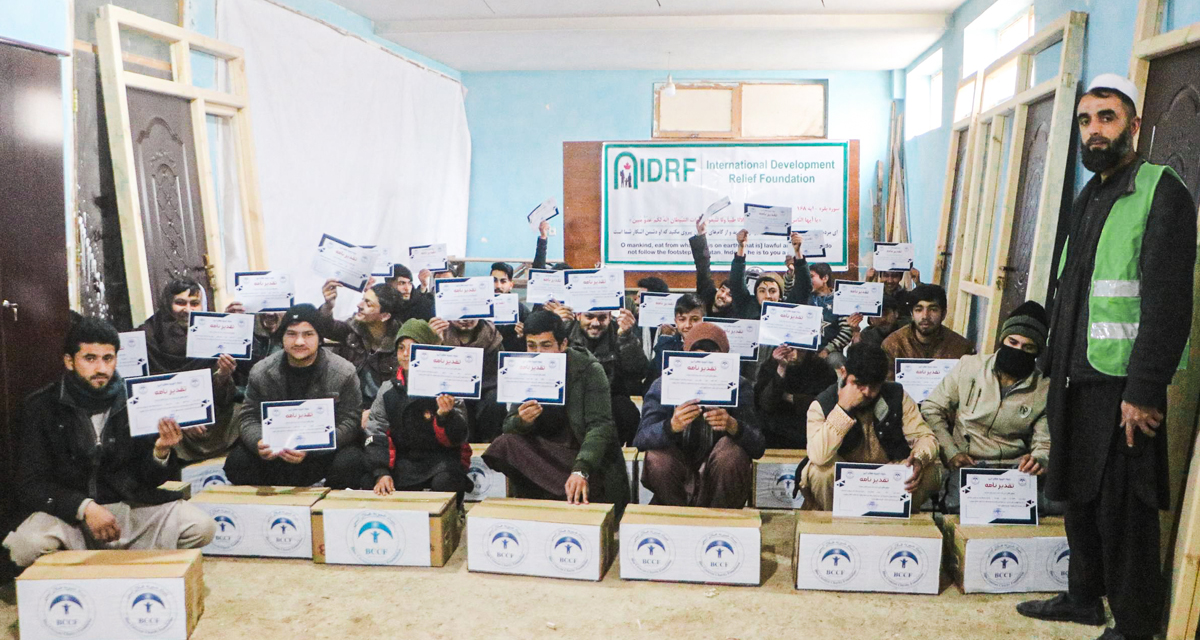

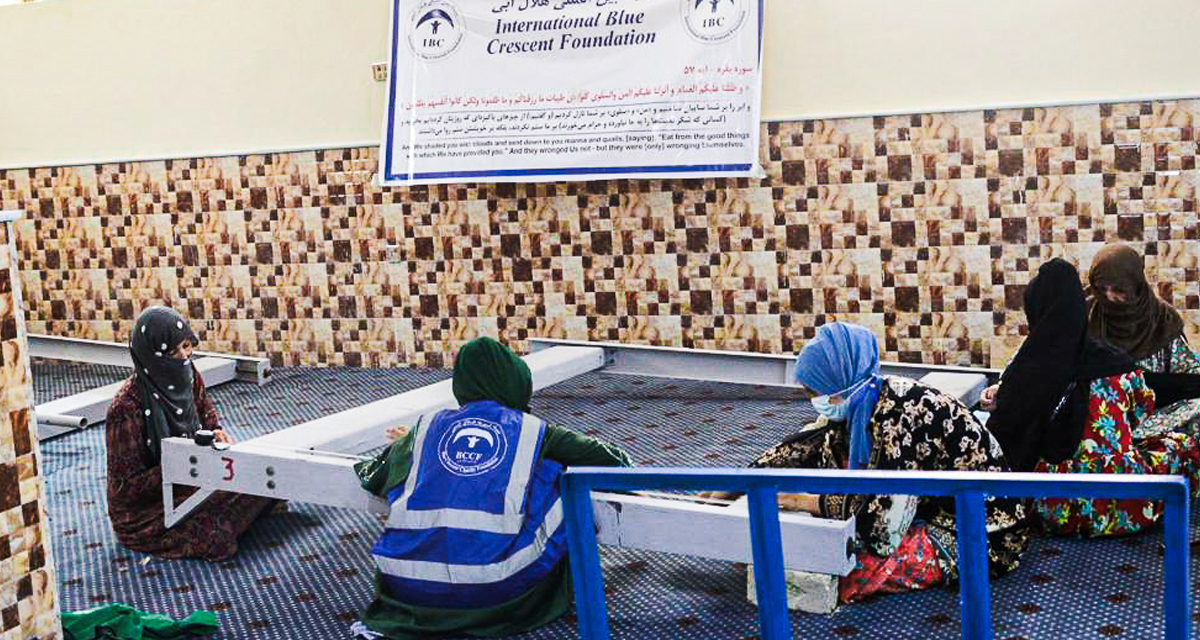
Decades of conflict, political instability, and limited access to education have exacerbated unemployment, particularly among young men and women eager to support their families.
In response, our vocational training program is empowering individuals to learn essential skills like tailoring, carpentry, and carpet weaving — industries with significant local demand. This initiative, the first of its kind in the country, equips participants with the tools and knowledge to integrate into the job market, achieve financial independence, and sustain themselves.

6,298
received vocational training for programs in Afghanistan
Morocco

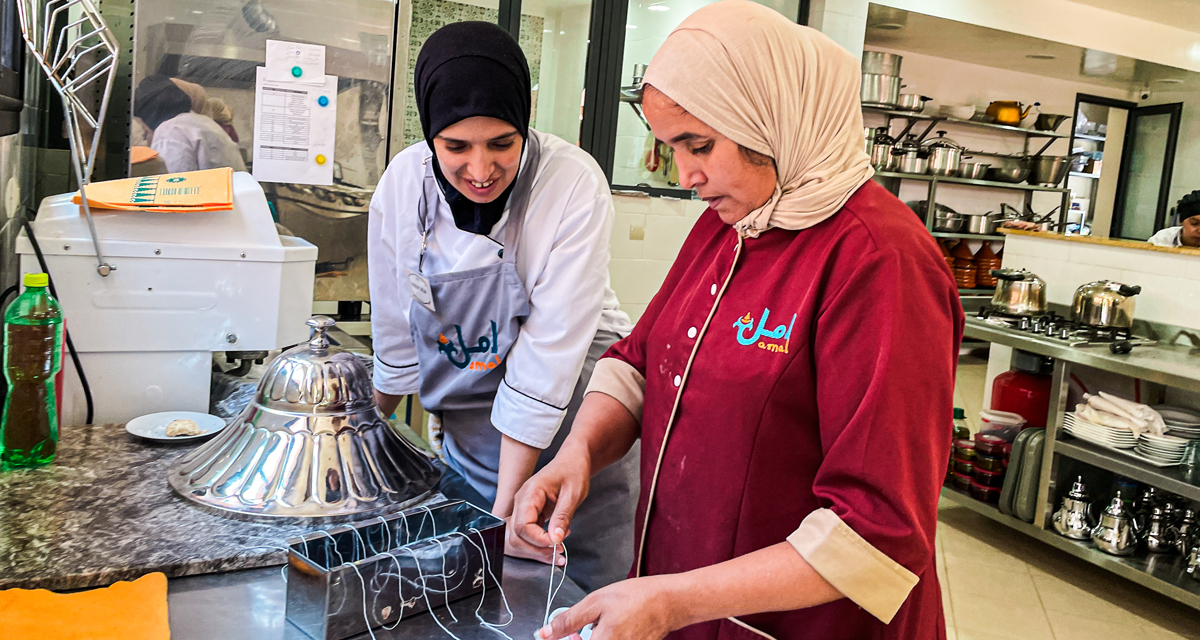
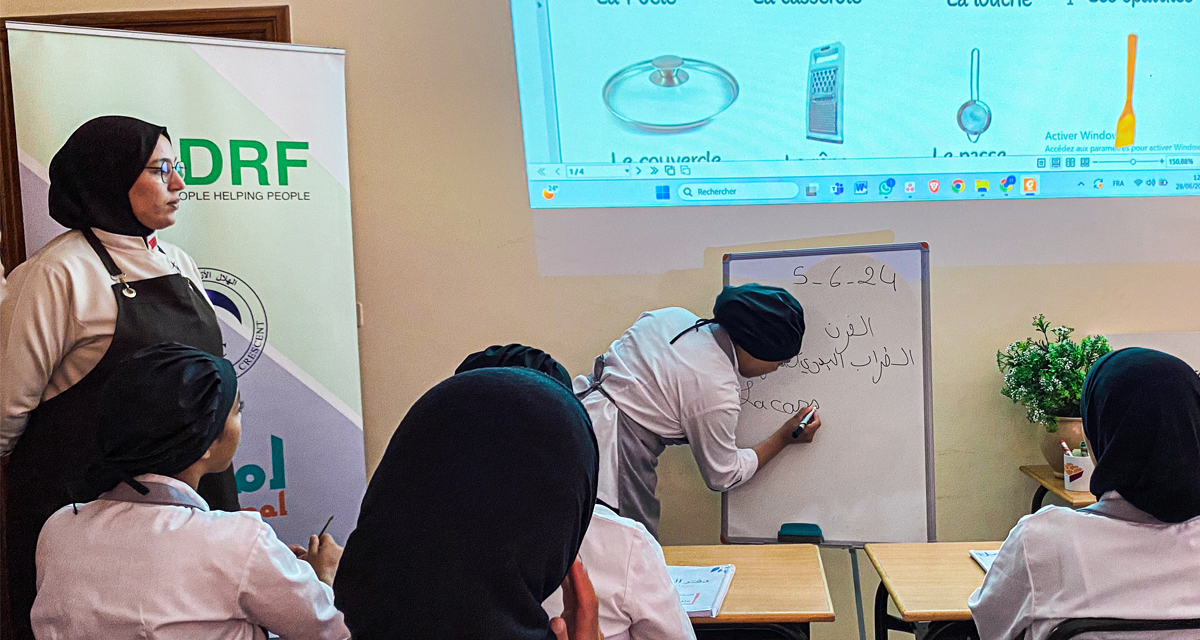
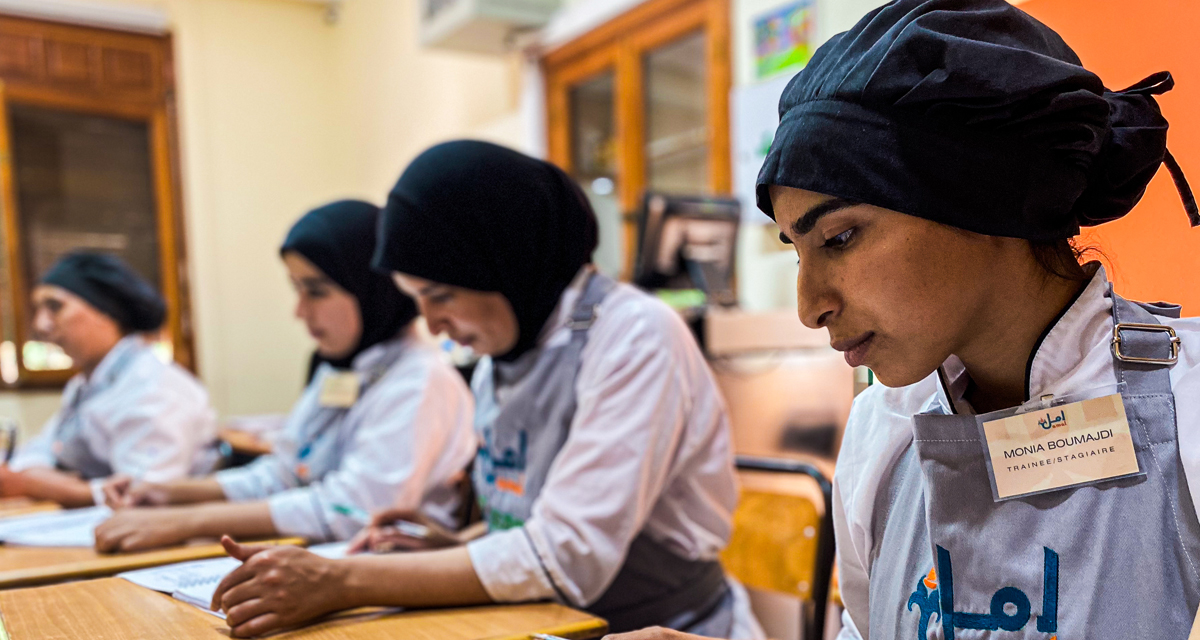
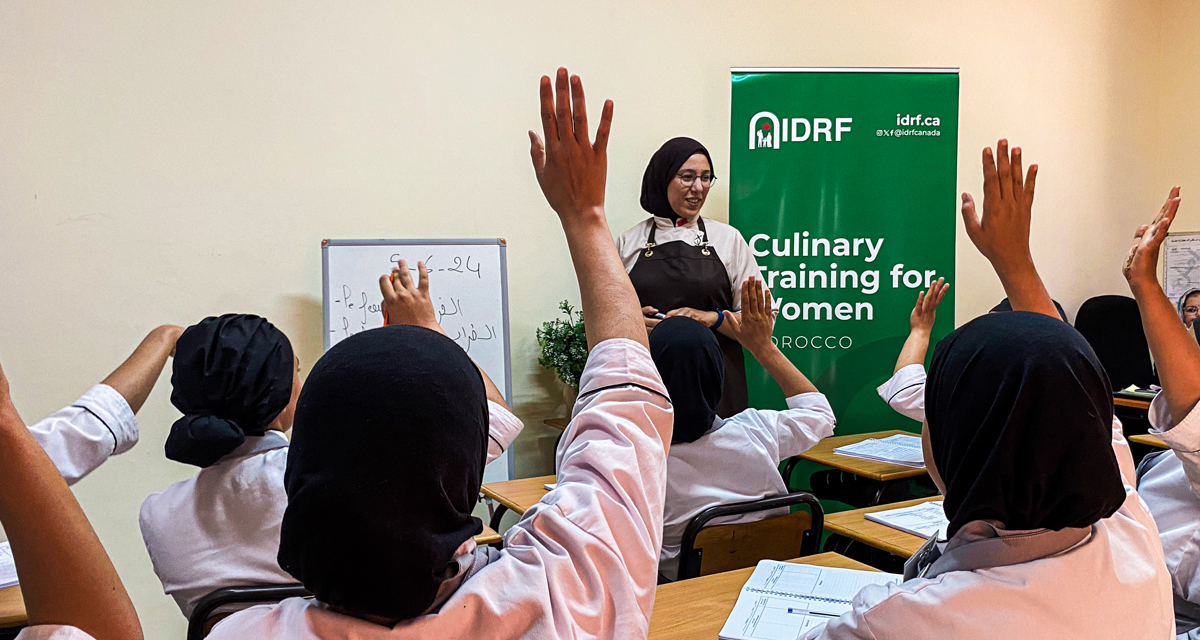
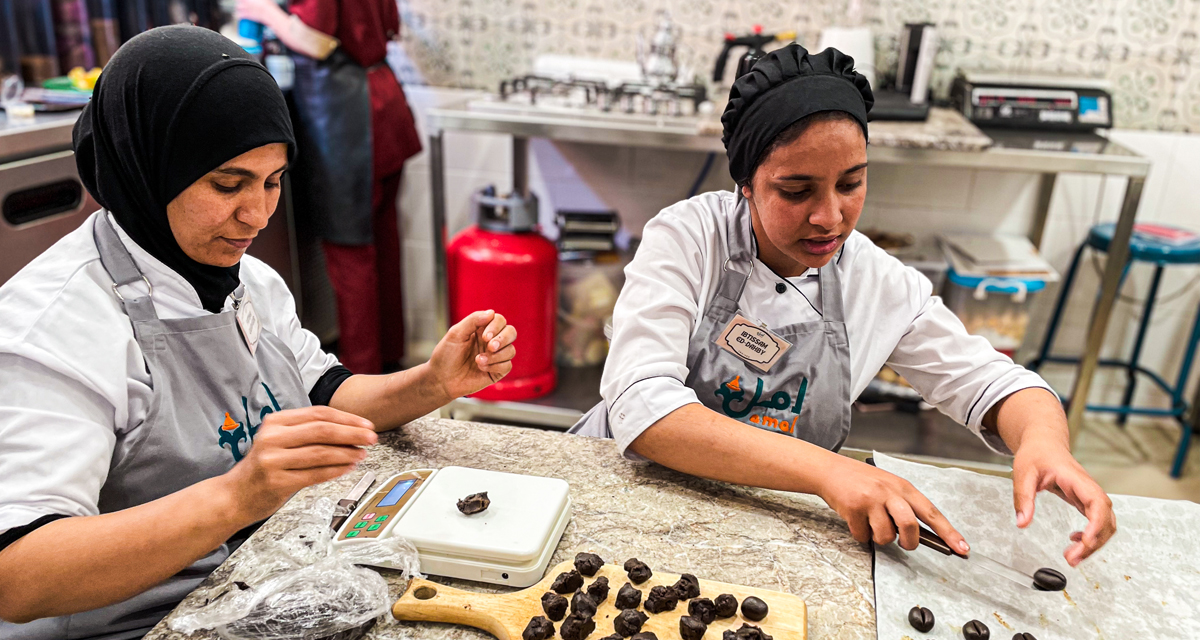


Despite progress in recent years, women in Morocco often face systemic barriers, including unequal access to education, restrictive social norms, and underrepresentation in the workforce. Many women are confined to low-paying or informal jobs, with little opportunity to break the cycle of poverty.
Early marriages and high rates of gender-based violence further exacerbate these challenges, leaving women, particularly those who are divorced, widowed, or single mothers, in vulnerable positions. Our culinary training program seeks to counter these disparities by equipping women with practical skills and work experience, creating a pathway to financial independence.
The program provides internships and employment opportunities in hotels and restaurants in Marrakech, helping participants to support themselves and their families while challenging societal norms and fostering greater equality.

30
women were trained in our culinary program in Morocco
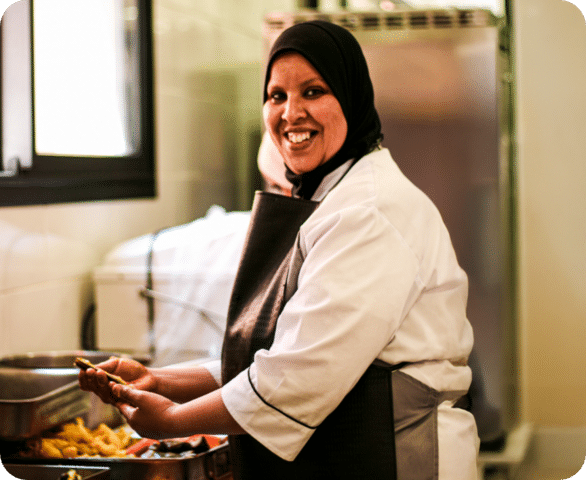
The program provided the space for me to become who I am today. It gives me hope for a better life, it helps me move forward.
Ilham, Morocco
A Brighter Future at Home
Setting young Canadians up for success.
Many lack access to job training, mentorship, and resources, leaving them at a disadvantage in securing their futures. Investing in tailored training programs, career development resources, and support networks empowers these young individuals to overcome challenges, build confidence, and gain valuable skills.

7,227
Canadians received training and tutoring support
Women in Tech


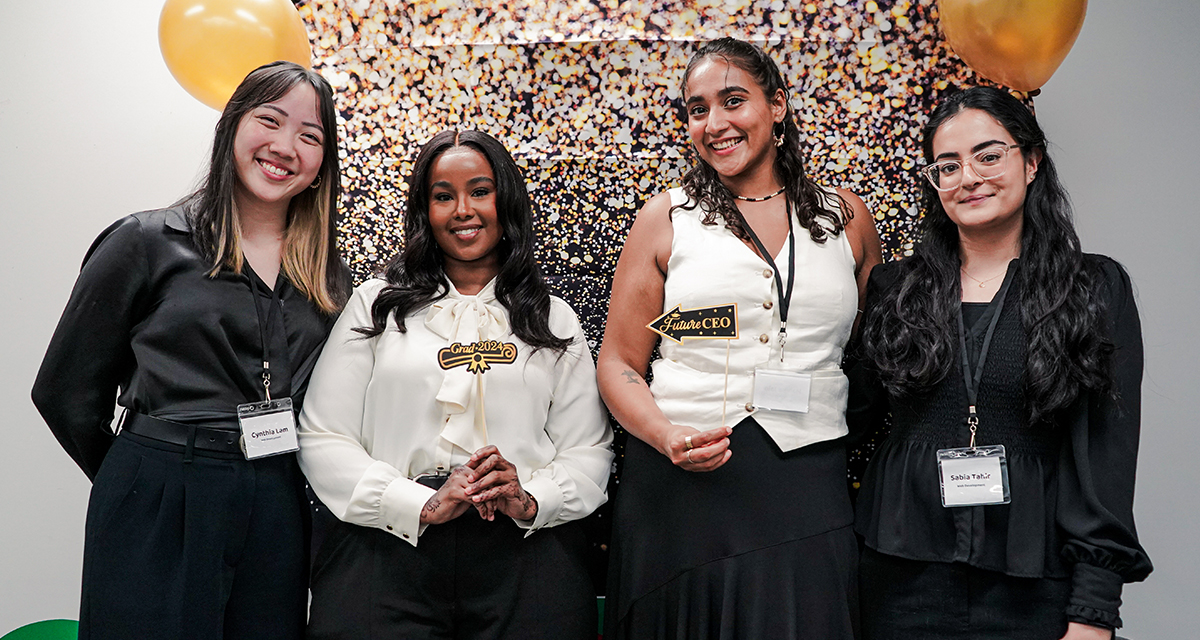
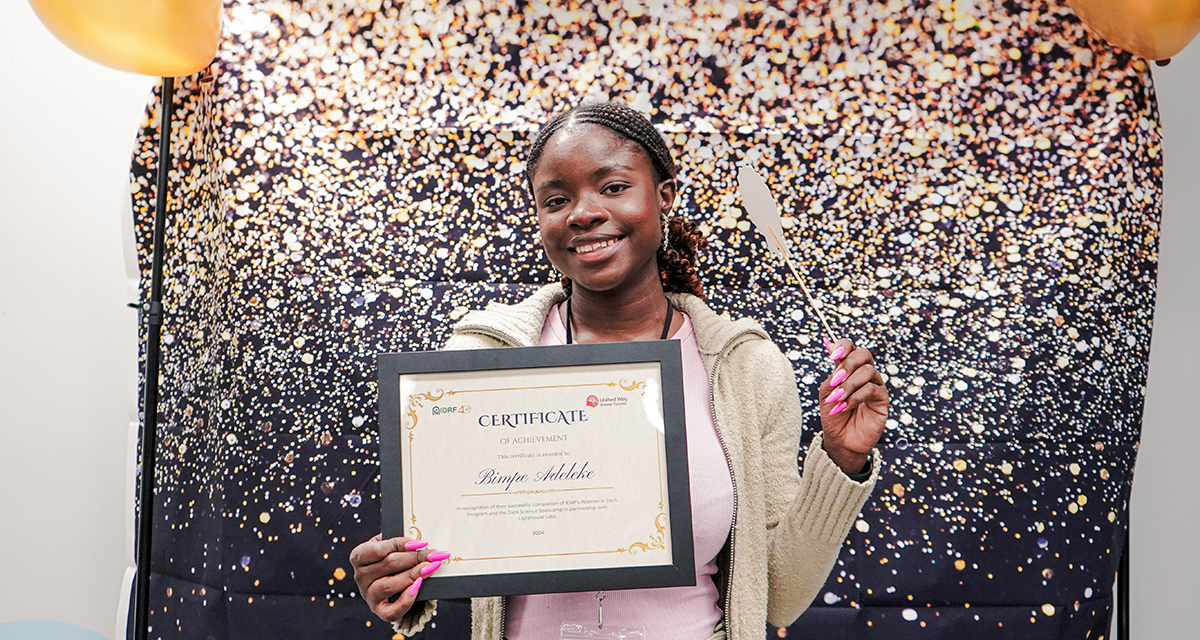

Heading into its sixth year, our Women in Tech program is empowering young women to bridge the gender gap in the tech industry by teaching them foundational web development skills.
This past year, participants were trained by past graduates who have become professional web developers, creating a supportive and relatable learning environment for novice coders. To further enhance opportunities, IDRF awarded full scholarships to select participants, enabling them to attend an intensive 12-week Web Development Bootcamp to become Full-Stack Developers.
By offering this program with no tuition costs, Women in Tech removes financial barriers, ensuring that all participants can access high-quality education and take the first steps toward thriving careers in technology.
We strongly believe that the core of relief and development lies right here in Canada, within our local communities. Our efforts in Canada focus on youth empowerment, women empowerment, gender inclusivity in the workforce, and economic development.

57
women were trained in web development, data science, and insurance programs.
Licensed 2 Learn

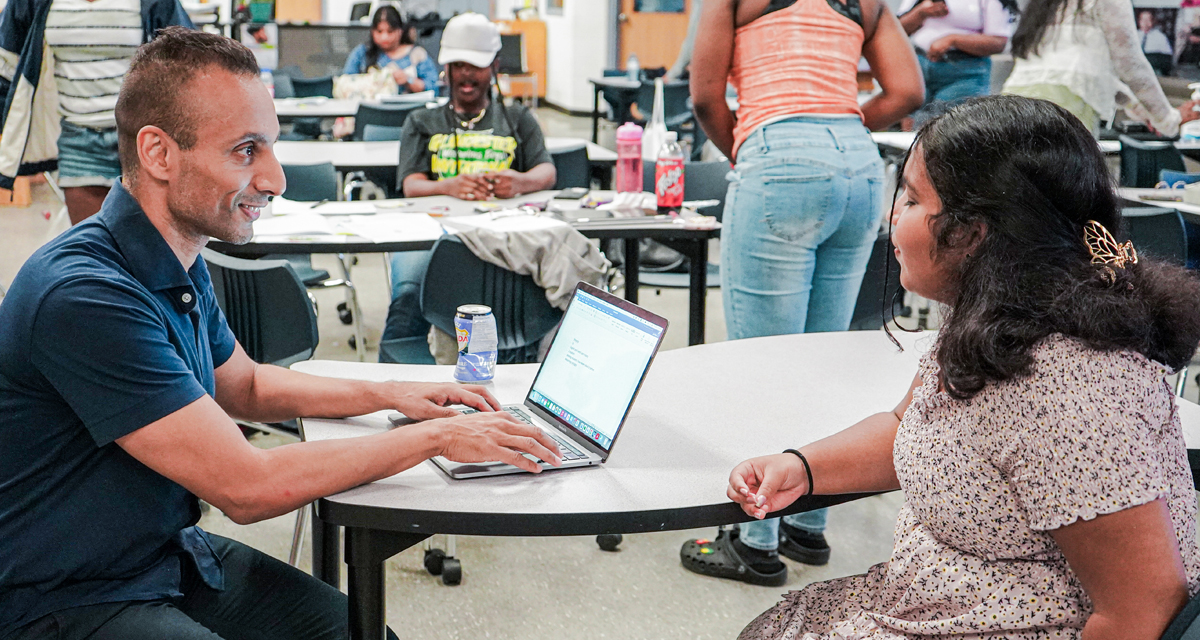
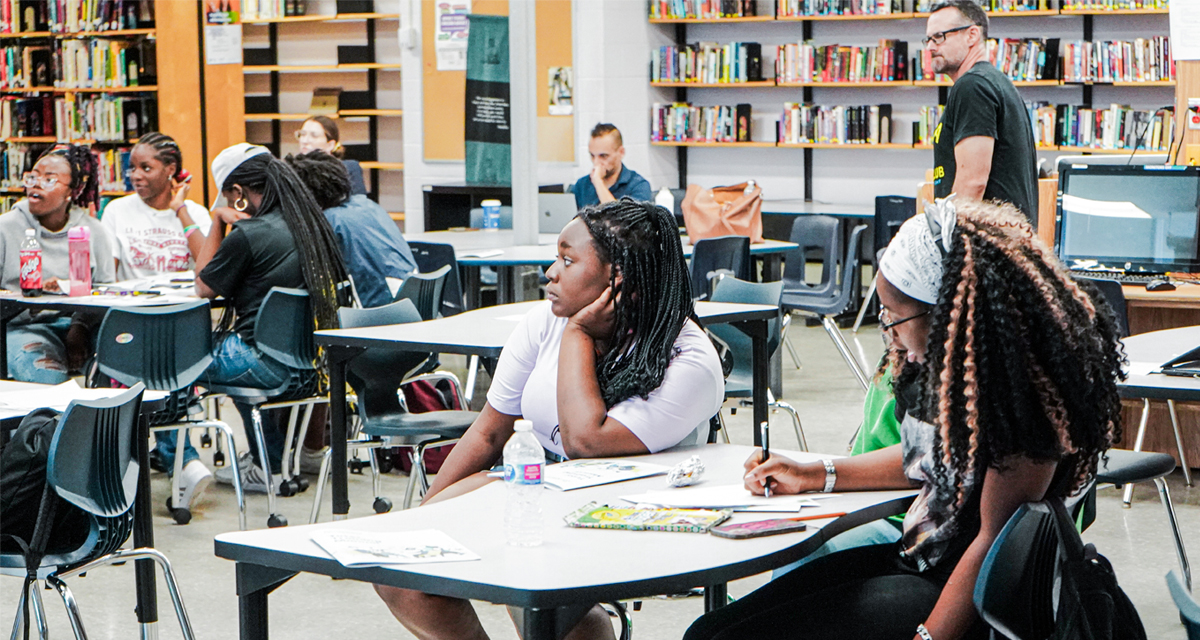

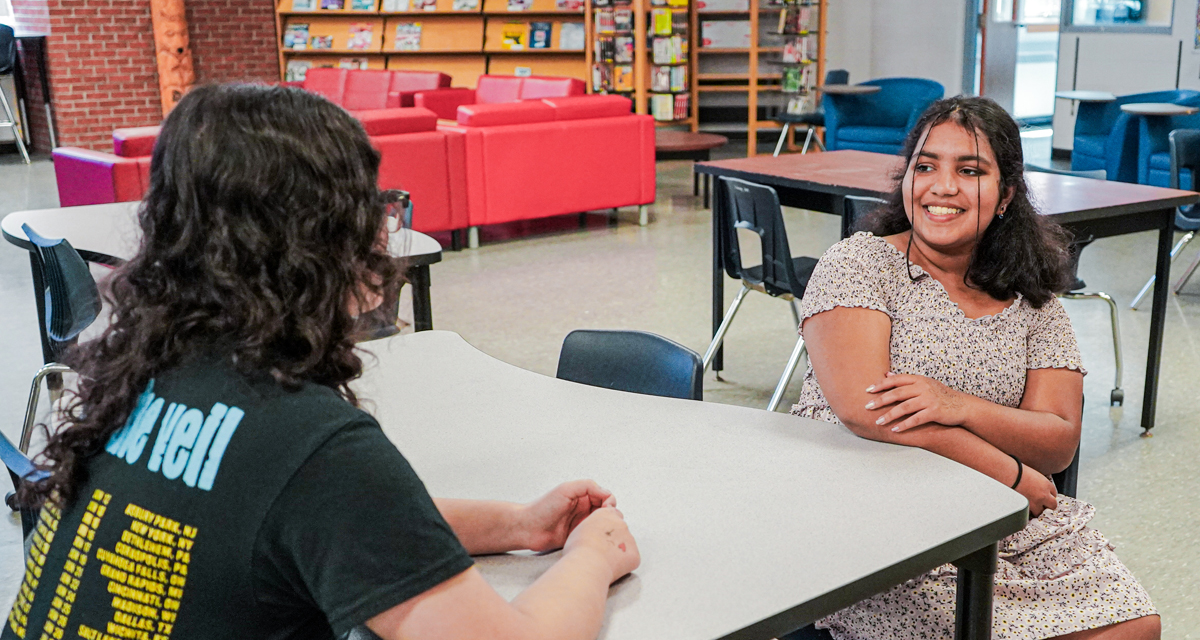
Through our free peer-to-peer tutoring programs, we have supported thousands of students in Canada.
We train and certify high-achieving students to volunteer as tutors, who mentor their peers facing academic challenges. These tutors conduct one-on-one sessions in subjects like math, English, and science, offering personalized support tailored to each student’s needs.
By making peer tutoring accessible to all, we continue to bridge educational disparities, ensuring that every student has the opportunity to succeed, graduate, and reach their full potential.

7,000
students received peer tutoring assistance in L2L
Get Job Ready
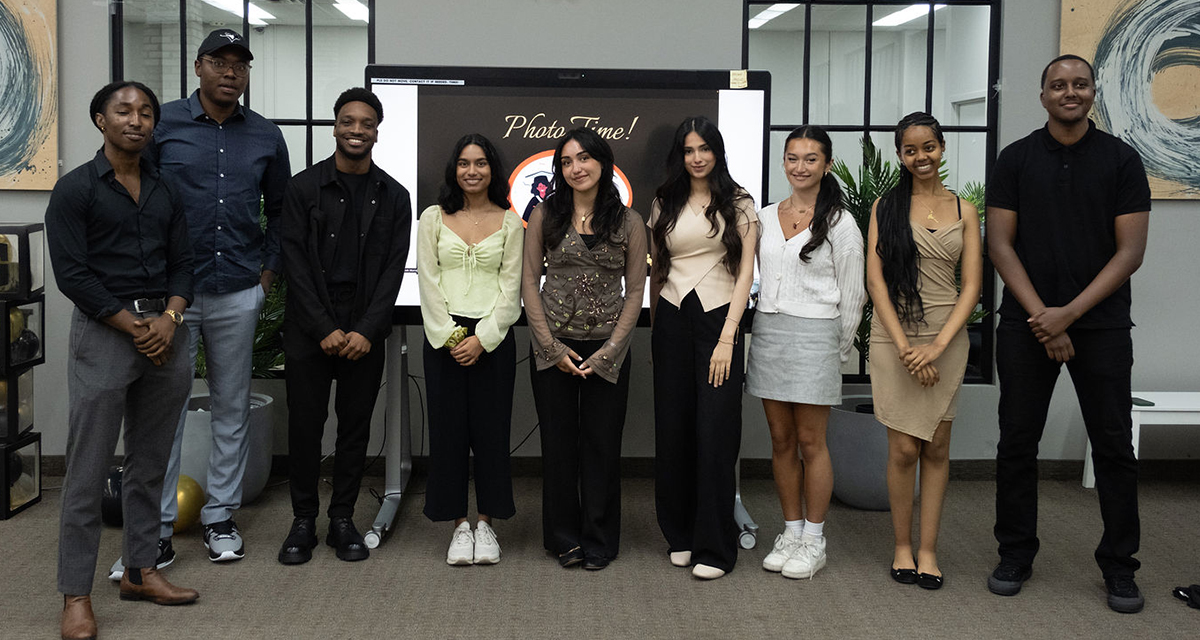
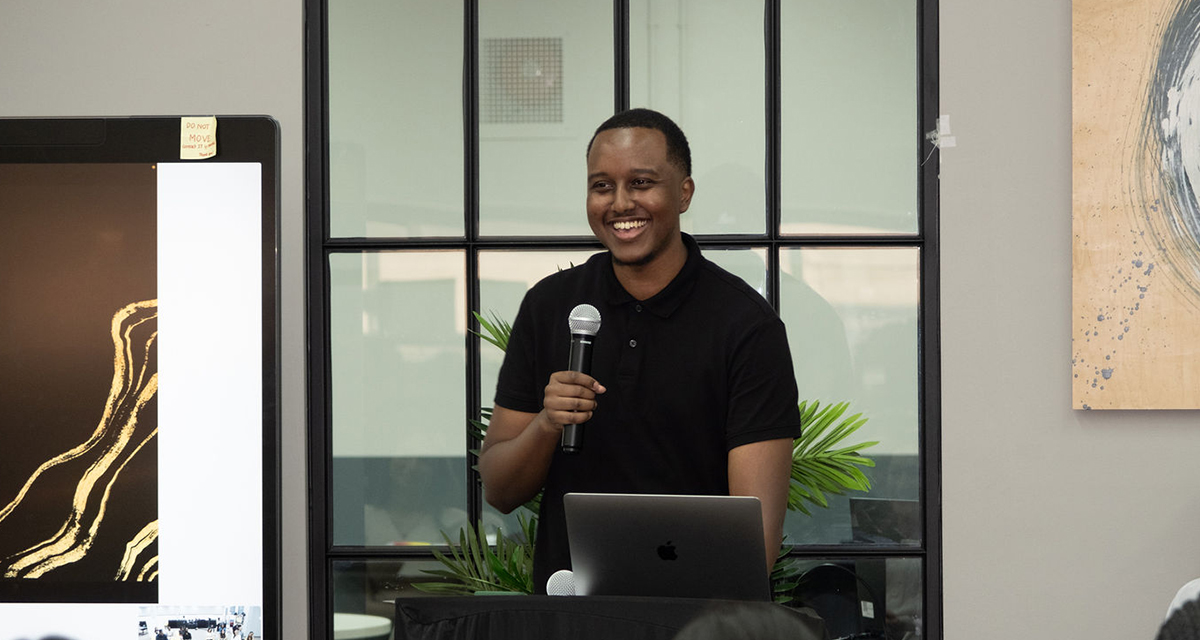



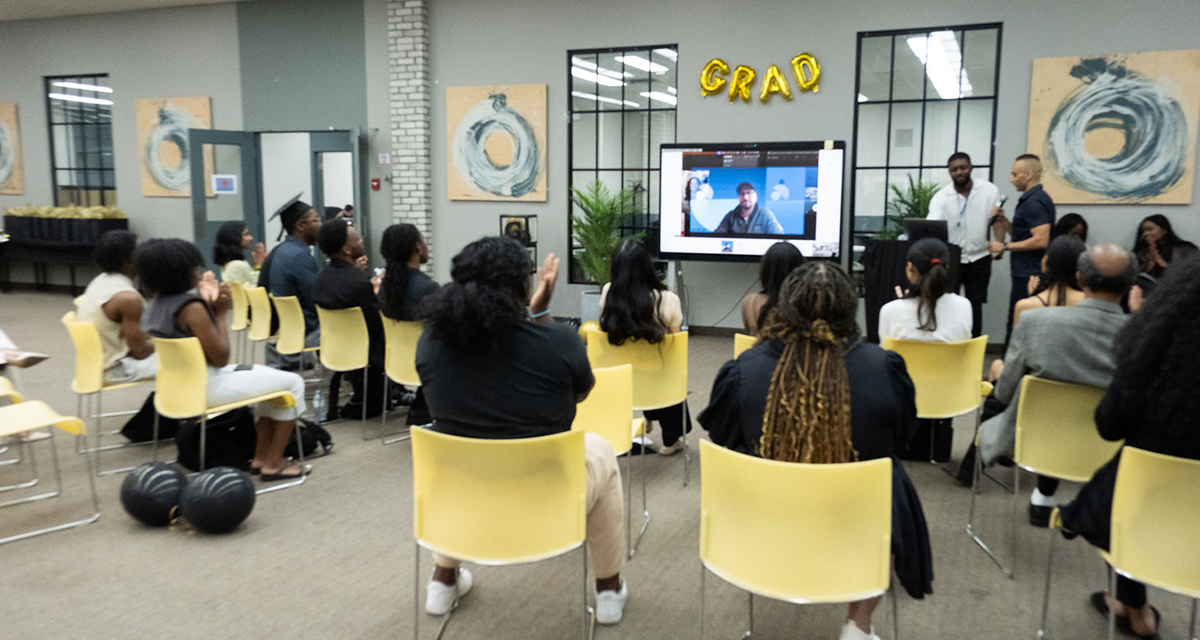
Many youth and recent graduates are navigating an increasingly competitive job market in Canada.
Tailored to meet the unique needs of diverse learner communities, the Get Job Ready program covers a range of critical skills, like developing a personalized networking strategy, acing job interviews, and building financial literacy. Additionally, participants receive training in soft skills such as public speaking, critical thinking, problem-solving, social cohesion, and leadership.
We provide holistic mentorship to youth, allowing them to enter the job market with confidence.

170
youth were trained in career readiness at Get Job Ready
Driven by our Mission. Inspired for the future.
It takes a team of dedicated collaborators, working toward a meaningful goal, to effect change. We are grateful for the ongoing generosity of our donors, and the support of gift-in-kind partners for their commitment to the world’s most vulnerable
Expenditures
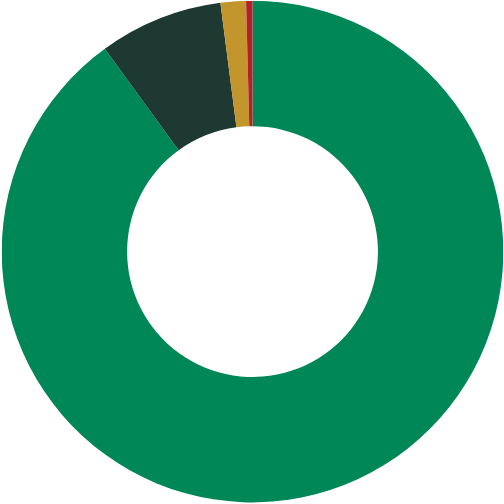
90.1%
of your donation goes to relief and development
 Programs 90.1%
Programs 90.1%
 Fundraising 8.4%
Fundraising 8.4%
 Admin 1.2%
Admin 1.2%
 Other 0.3%
Other 0.3%
Statement of Operations
| REVENUE | 2024 | 2023 | 2022 |
|---|---|---|---|
| Donations and fundraising events | 30,449,273 | 20,212,864 | 13,698,265 |
| Donations in kind | 10,204,070 | 4,984,966 | 3,251,501 |
| Other income | 92,660 | 129,856 | -3,033 |
| TOTAL REVENUE | 40,746,003 | 25,327,686 | 16,946,733 |
| EXPENSES – PROGRAM SERVICES | |||
| International Projects : | 30,666,763 | 20,565,345 | 14,371,083 |
| Food Security | 9,629,377 | 5,479,879 | 5,081,795 |
| Emergency Relief | 13,046,791 | 7,589,189 | 3,563,684 |
| Water, Sanitation & Hygiene (WASH) | 835,490 | 2,614,167 | 2,803,161 |
| Health | 3,836,980 | 3,577,460 | 1,554,624 |
| Education | 2,919,005 | 1,014,069 | 842,504 |
| Economic Development | 399,120 | 290,581 | 525,315 |
| Canadian Projects : | 5,791,959 | 2,138,550 | 2,109,392 |
| Emergency Relief | 523,799 | 482,824 | 979,491 |
| Food Security | 2,255,775 | 541,060 | 631,971 |
| Education | 505,703 | 550,103 | 484,965 |
| Health | 1,126,289 | 564,563 | 12,965 |
| Educational Development | 130,081 | 104,683 | 92,328 |
| TOTAL EXPENSES | 36,588,803 | 22,808,578 | 16,572,803 |
| SUPPORTING SERVICES | |||
| Amortization | 63,390 | 67,628 | 70,422 |
| Fundraising | 3,161,602 | 2,121,437 | 1,437,005 |
| General and administrative | 391,581 | 314,049 | 296,577 |
| TOTAL SUPPORTING SERVICES | 3,616,573 | 2,503,114 | 1,804,004 |
| TOTAL | 40,205,376 | 25,311,692 | 18,376,807 |
| EXCESS OF REVENUE OVER EXPENSES | 540,627 | 15,994 | 1,430,074 |
Thank you to every one who has contributed over the past year.

Volunteer with us

Donate
